精選網誌
緊貼Little Habs的最新消息和動態
- 全部
- goodsleep
- Activity Pack
- ADHD
- 年齡指南
- attention skills
- AutismSpectrumDisorder
- CircleofSecurity
- COVID19
- earlychildhood
- emotionofjealousy
- Empathy
- friend referral
- Fun
- GrossMotorSkill
- independence
- Inspirational
- languagedevelopment
- learning
- motivation
- onlinelearning
- parent-child relationship
- playgroup
- praiseyourkids
- praiseyourkids
- Recommended
- Resilience
- selfesteem
- sensoryexploration
- separation anxiety
- speech
- TroubleTwos
- 分離焦慮
- 大肌肉發展
- 嬰兒熟睡
- 孩子服從性
- 安全圈
- 專注力
- 幼兒發展
- 感官發展
- 感官遊戲
- 抗逆力
- 朋友回贈
- 親子
- 親子
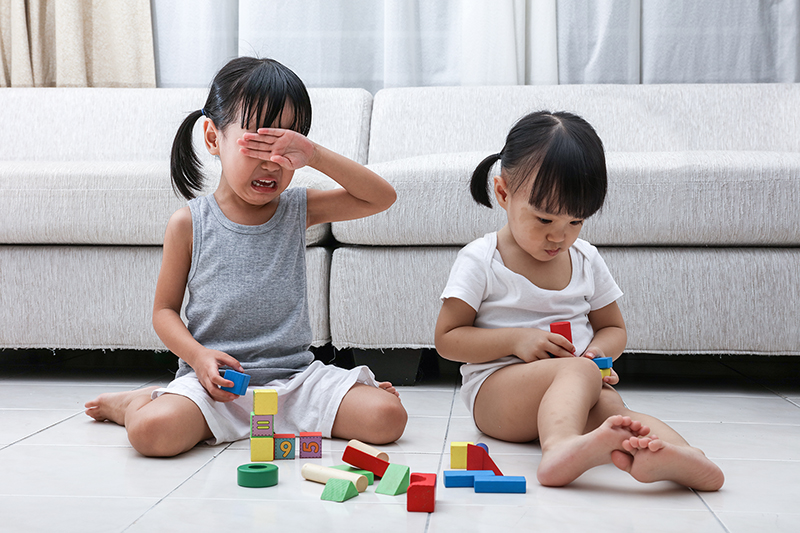
2023年10月18日
認識嫉妒這情緒
每個人也有嫉妒的時候,但要知道嫉妒是個非常複雜的情緒狀態,當中蘊含着生氣、傷心、焦慮、怨恨及羞愧等情緒。孩子們難以用言語表達這個複雜的情緒,所以往往以問題行為來表達。在表達藝術的形式中,孩子往往能透過非言語的方式表達自己的想法和感受,讓治療師明白行為背後箇中的因由。
「嫉妒小孩」的問題行為:
- 攻擊行為
- 搗蛋
- 引人注意
- 倒退行為(例子:變得愛哭、變得黏人、進餐時間拖長要求為食、容易尿床,等等)
爸媽請緊記:
- 嫉妒是自然的情緒,不用抑壓。
- 我們會有嫉妒情緒,是因為我們很重視和珍惜與對方的關係,害怕這段關係受到威脅。
- 檢視家中成員的關係,想想如何在生活中作出改變並與孩子一起尋找新的相處方法。
爸媽可以:
- 心理學家研究指出,加強兒童的情緒調節以及建立情緒和社交能力,可以改善他們與姐妹和兄弟的關係(Kennedy&Kramer,2008)。所以家長可多與孩子練習情緒調節四步曲:覺察、命名、表達和調節。
- 細心留意孩子之間的正面互動,並把握機會將孩子背後的心意說出來,真人孩子之間的感情。例子:弟弟主動提出一起玩,父母可以翻譯說:「弟弟喜歡你,想和你一起玩。」
- 緊記說話後別留有尾巴,令對方難受。例如:「你睇吓家姐幾錫你,你就冇家姐心!」
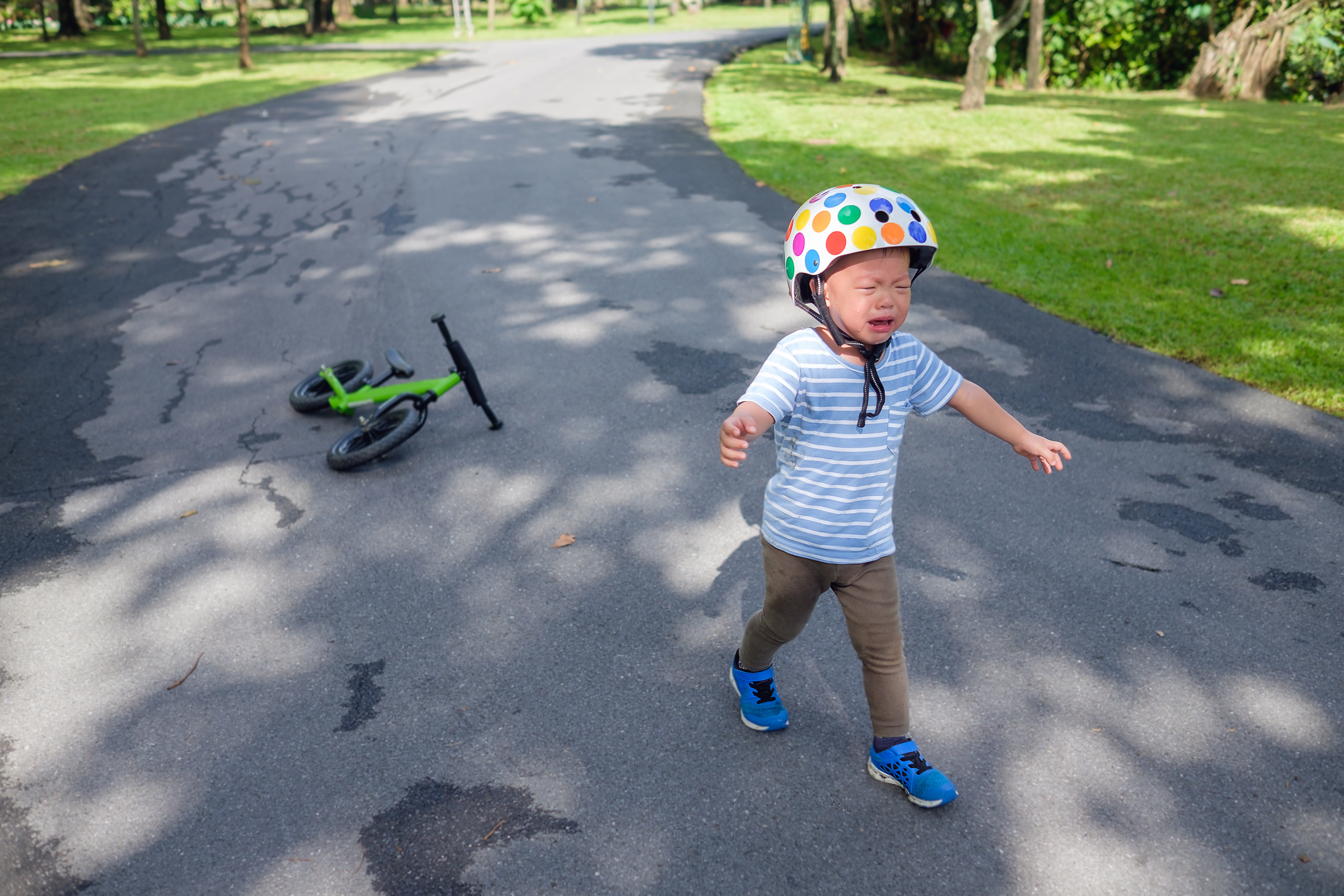
2023年7月20日
培養孩子抗逆力
什麼是抗逆力?
抗逆力是適應逆境的能力,使人能在壓力出現時保持心理健康、從逆境中復原過來,以及在復原後得以成長。
那麼我們可以做什麼來提升孩子面對逆境的能力?答案便是提升他們的幸福感。
我們一起看看提升幸福感的「APP」小貼士吧!
A:成就感 ( Accomplishment)
從小培養孩子不怕困難,努力不懈的精神,讓他們透過完成任務來獲得大大小小的成就感。
P:良好的親子關係 (Parent-child relationship)
孩子能夠與別人建立及維繫良好的關係能增加生活中幸福的感覺。而親子關係就是在早期幼兒人際關係中扮演著最重要的一環。
P:正面情緒 (Positive Emotion)
正面情緒幫助我們減低壓力所帶來的負面影響。透過使人愉快、增加歸屬感和感恩之心的活動,可讓孩子感覺良好並更能克服困難。

2023年6月13日
如何處理孩子及父母的分離焦慮
遇到孩子不願意與父母分開的情況時,父母切記不宜趁孩子不注意時偷偷離開,令孩子更害怕父母會突然離開,對父母產生不信任;或相反地,亦不宜因為孩子哭泣而遷就孩子,繼續陪伴或停留,令孩子誤以為哭泣是可以令父母停留的方法。
父母首先要用穩定的情緒,向孩子表示明白及體諒,父母可以說:「你要與媽媽分開獨自上學,你覺得不開心。」用簡單及清晰的言語幫助孩子反映感受,令孩子感到被明白。然後,清晰地告訴孩子你什麼時候會回來:「我會於12點/你吃完茶點後回來接你。」具體地告訴孩子於什麼時間便可以再見到父母。經過重複及穩定地告別,孩子便能逐漸建立起「父母會回來接我」的信心,快樂地與父母告別。
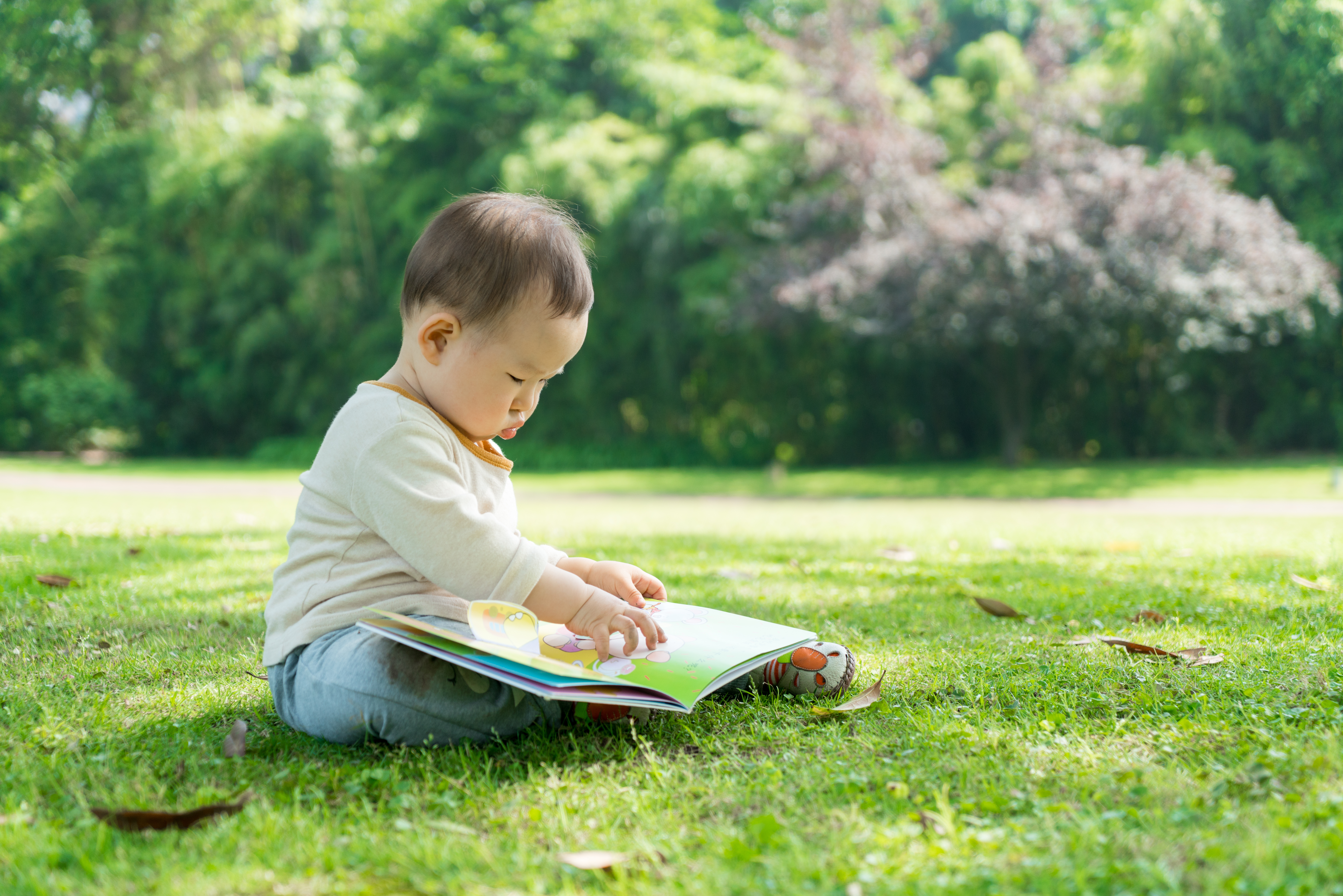
培養孩子的專注力
專注力是孩子各方發展的重要條件,長遠影響他們的學習能力、人際關係,甚至是將來於學校和工作的表現。教育心理學家江雅琪姑娘在講座中講解有關幼兒的專注力發展和家長於當中的角色。以下為講座撮要:
幼兒的專注力受著自身、家庭及環境因素互相影響
與專注力息息相關的自身因素包括生理(如腦部發展及身體狀態)及心理(如記憶力和語言理解能力)發展程度,故此良好的飲食習慣、充足睡眠和適量的靜、動態活動非常重要
安排活動及設置遊戲空間時,家長應在「重複、減少干擾」以及「新鮮、增潤經驗」之間取得平衡,同時留意孩子的能力、當刻的狀態和反應
幼兒「不專注」的表現可能來自難以用言語表達的需要,家長可留意孩子的身體語言(如面部表情、視線、動作)以及前後發生的事情去了解和回應他們的需要
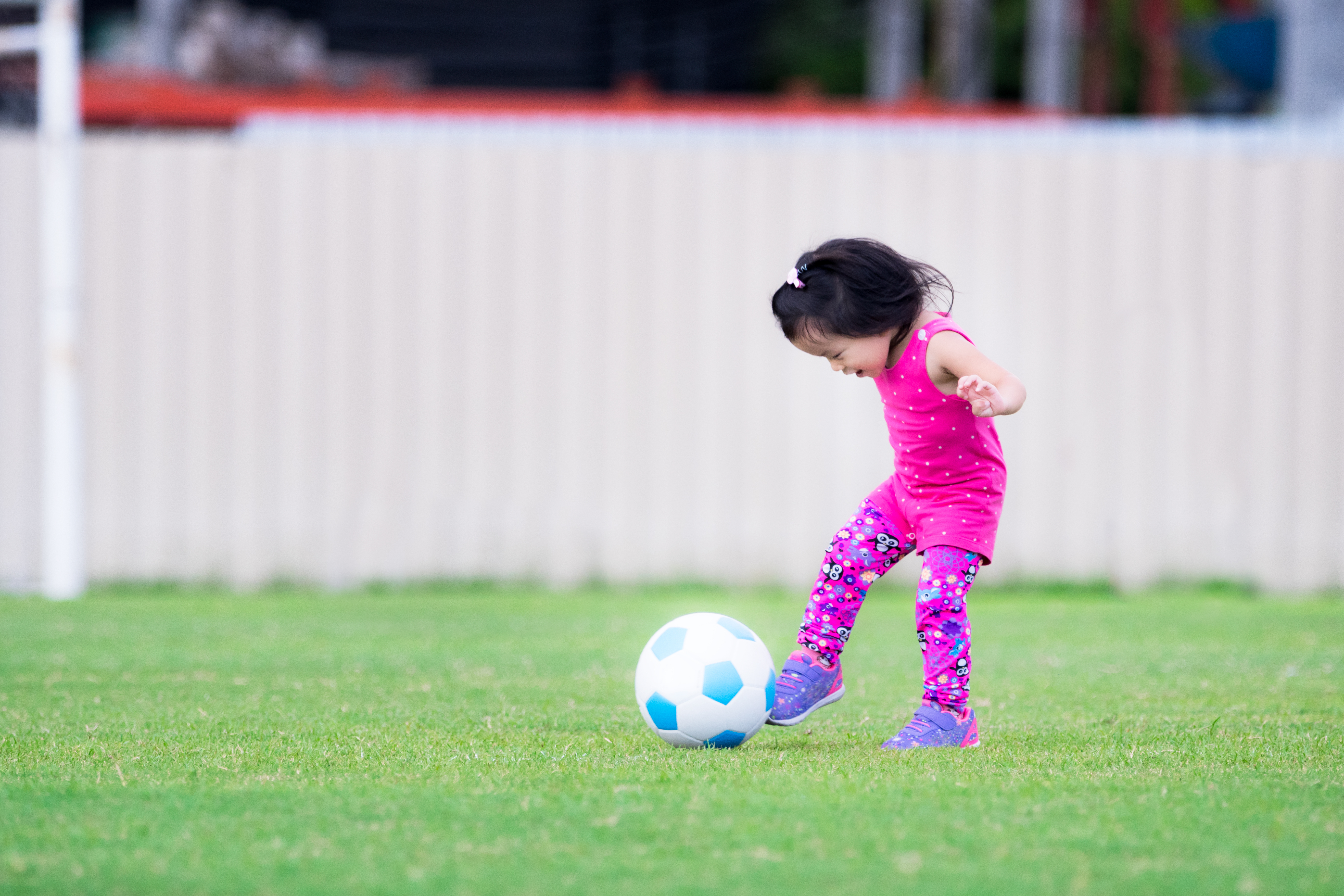
2023年4月22日
What does the term ‘gross motor skills’ mean?
Participating in activities to improve gross motor skills is integral for a child’s development and can occur naturally in everyday life. Gross motor skills can be a very broad term that covers many things. This article will help to explain what the term means and what you can do at home to develop these skills in your children.
What does the term ‘gross motor skills’ mean?
Gross motor skills are abilities that involve the larger muscles in the arms, legs and torso. Using these muscle groups links to other abilities including:
• Balance
• Coordination
• Body awareness
• Physical strength
• Reaction time
Gross motor skills allow children to participate successfully in activities at home, school and in the community. Children improve their gross motor skills naturally over time and with practice, some may be faster than others and that is okay. Your child will have their own developmental journey, the best thing you can do is encourage and support your child along the way.
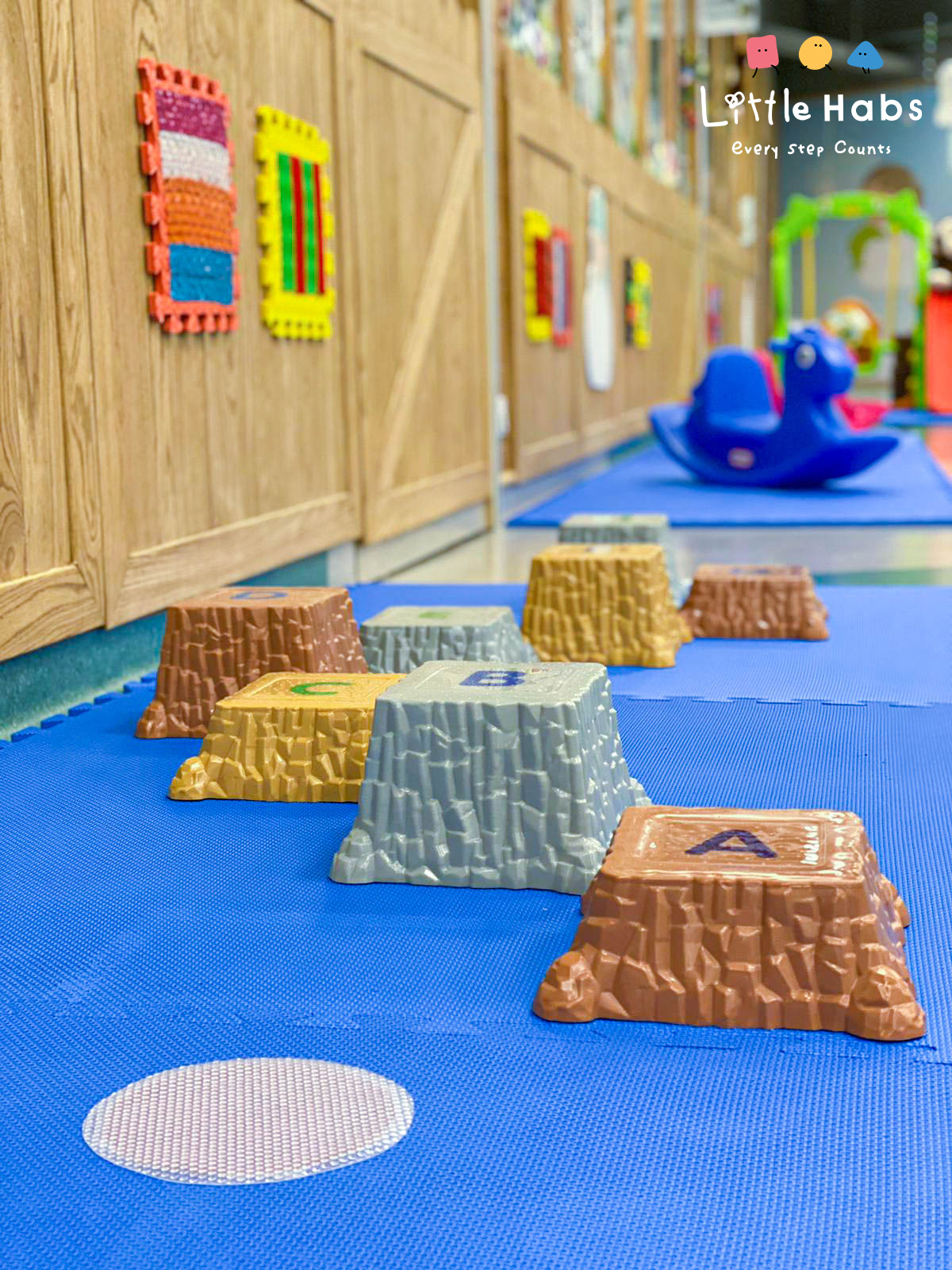
2023年3月10日
Gross motor skill activities
Below are examples of two activities you can do with your children at home to help them improve their gross motor skills. Remember that practice and patience go hand in hand when helping our children to learn new skills.
Stepping ‘stones’:
This activity can improve your child’s balance, coordination, physical strength and body awareness.
Create a path at home using different objects for your child to step on. You can buy different variations of this activity online or you can create it yourself at home.
For younger children, create flat steps such as circles of coloured paper (secured to the floor to ensure they don’t slip). Start by using big circles and reduce the circles in size as your child progresses. Place the circles close together and encourage your child to step on the circles with two feet, you can ask them to stomp their feet on the circles to help them understand the activity. Once they understand the premise, try to encourage them to step onto the circles one foot at a time.
As your children grow older and their gross motor skills improve, you can use 3D objects to integrate height into the activity and this will improve their balance. These objects can include balance beams, boxes, small chairs and anything else you deem safe and fit for this activity. To build their confidence, hold your child’s hand to help them across and slowly let them become more independent as they become more confident.
Remember to supervise your children at all times while practicing as accidents can happen.
Playing ball:
The size of the ball and activity can vary according to your child’s age/ ability. This activity will work on your child’s reaction time, coordination, body awareness and physical strength.
For younger children, start by rolling a soft ball towards them. Let them explore the ball to see how it moves and to help them feel more comfortable. Over time, encourage them to try pushing/ rolling the ball, in any direction at first and then toward someone or something. As your children grow older and their motor skills develop, introduce throwing the ball. Start by practicing to release the ball, then you can move on to throwing into or toward things. When your children feel confident with a soft ball, move onto slightly harder ones that will improve their physical strength.
We hope you find this article useful in working on your child’s gross motor skills at home.
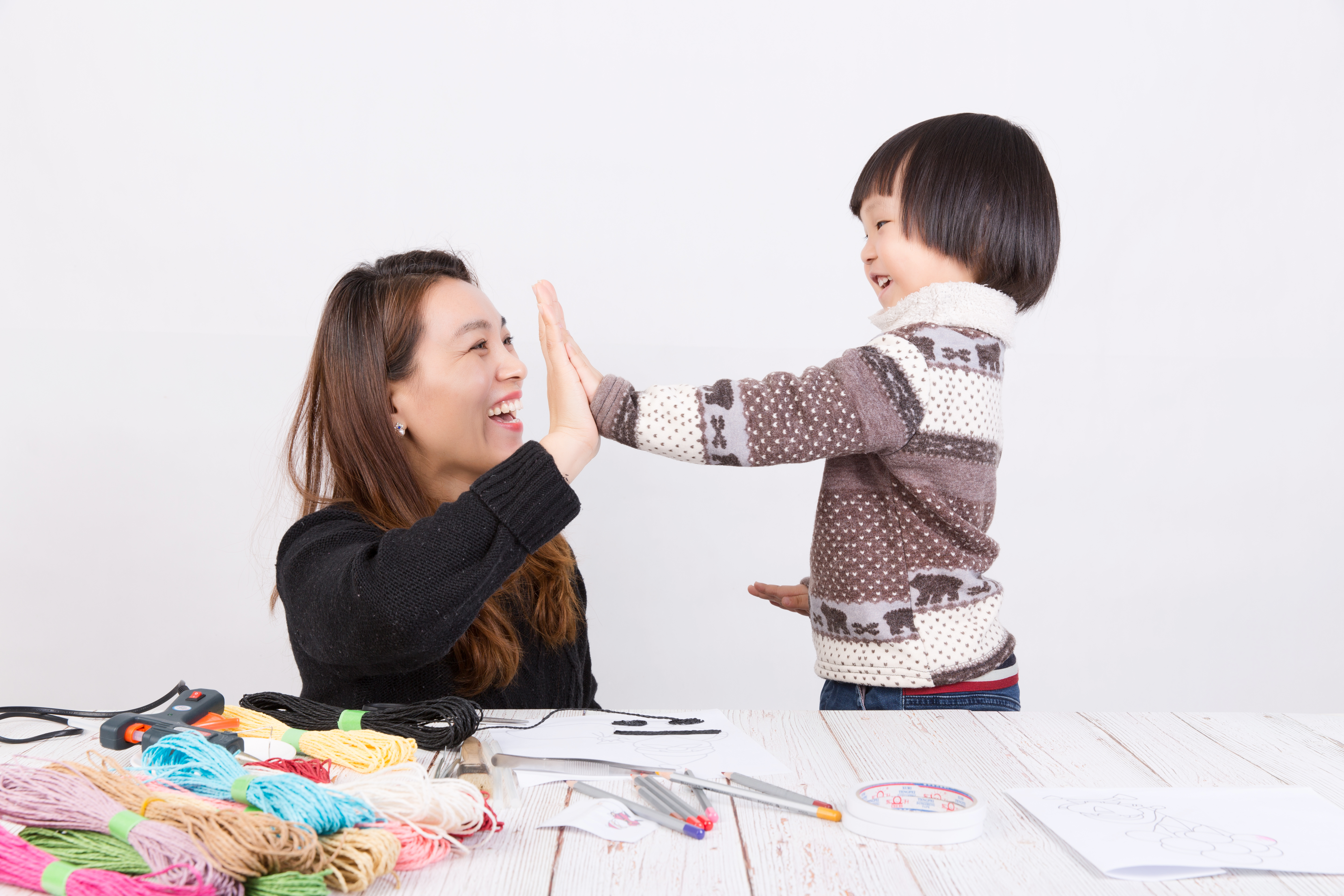
2023年2月28日
如何增強孩子的服從及合作性
很多父母於孩子出生時願望都是希望孩子能夠快樂健康。但隨着孩子年齡漸長,父母對孩子的期望漸漸增加,要求也越來越高。這是可以理解及合理的,但父母不宜經常認為自己的孩子很有問題,認為自己的孩子特別難教,但卻不為意自己的要求其實越來越高。有時候,孩子的行為問題是成長階段中必然出現的事,以三歲的孩子為例周身郁、不專心、未能自己食飯也是成長中的必經階段。若家長過分的操控或大罵孩子一場,說出一些責備恐嚇孩子的話,不但破壞孩子的自我形象,亦破壞彼此之間的關係,更難令孩子心悅成服地聽從父母的話。
良好的親子關係才是改善問題的基礎。要孩子聽話合作並不需要用打罵的方法,只需多留意孩子的優點,多給予肯定及讚賞;遇上問題行為時,家長可以嘗試用「後果」代替「懲罰」,懲罰一詞的感覺往往帶來更大的負面情緒。家長可語氣溫和堅定地告訴孩子做錯事帶來的後果,例如扣減孩子的零食或娛樂時間,堅定地執行已說明的後果,孩子便能學習為自己的行為承擔後果。

2023年1月11日
認識有特殊需要的孩子
及早識別與介入能讓有特殊需要的孩子健康成長的關鍵。教育心理學家唐瑩博士將講解有關自閉症及專注力不足/過度活躍症的識別,以及與家長分享一些家居訓練的策略。家長親子小貼士如下:
透過親子遊戲以提升患有自閉症幼兒的與人共同參與的社交能力:
家長與孩子面對面坐, 盡量保持同樣高度以提升眼神接觸的機會
由孩子作主, 選擇他喜歡的玩具以提升孩子動機與家長互動
家長模仿孩子動作, 讓孩子感到家長對自己的肯定, 提升孩子注意家長的參與
家長模仿孩子還未掌握的社交行為, 例如有禮貌地要求與分享等
透過有效指示以提升患有專注力不足/過度活躍症的孩子跟從的機會:
每次只給一個指示
簡短具體
指示明確說明孩子應該做的事
以尊重的態度給予指示

2022年12月22日
如何令BB一覺瞓天光?
如何令BB一覺瞓天光
孩子睡得好、睡得夠,對學習、記憶、創意都是關鍵!研究指出,如小孩睡眠不足,會影響健康及發育,更重要是影響長大後的認知能力、學習能力及令脾氣暴躁。
其實睡眠是一種科學 :
只要認識各年齡層的作息時間及睡覺總時數,掌握小孩生理時鐘,已經成功了一半!合適的睡眠環境,可以令小孩有比較好的睡眠質素。另外,亦可幫小孩逐漸減少依賴大人或奶嘴的安撫,學習自入行睡。
只需用合適的方法,相信每一位健康的孩子都有能力一覺瞓天光的!
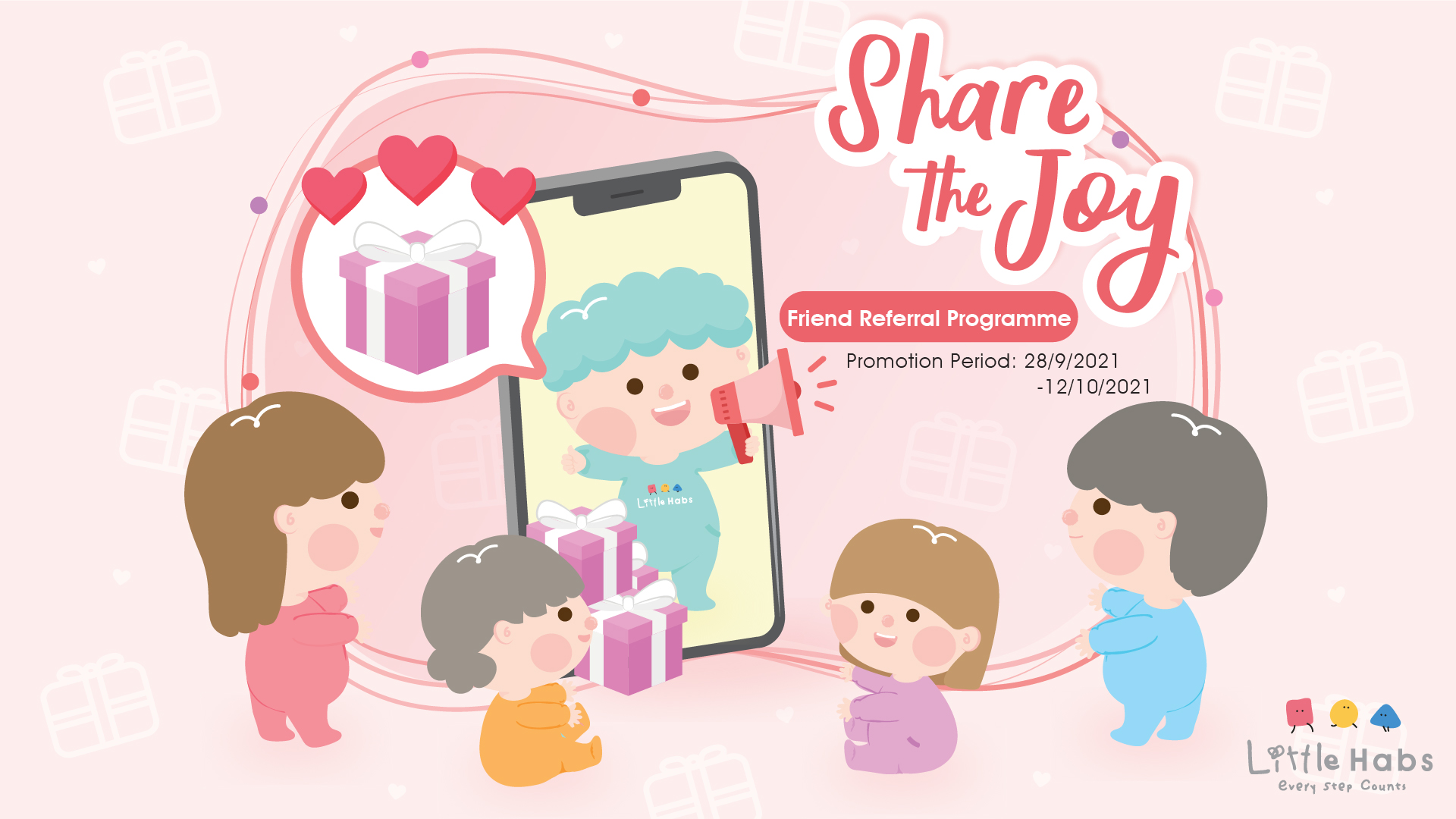
2021年9月27日
”Share the Joy” - Friend referral Program
於2021年9月28日至10月20日前成功推薦頭4位好友,新生*好友可享港幣300元報讀11月-12月恆常課程或興趣班;9月-10月家長即於1月-2月課程獲得高達港幣1,200元回贈!好友邀請計劃詳情:
朋友禮遇
以舊生電郵登記,新生可獲港幣300回贈
適用課程: 11月-12月課程恆常課程或興趣班
https://click.mailerlite.com/link/c/">*受有關條款及細則約束

2021年7月30日
如何使用電子消費券
HK$5,000 consumption voucher can used in Little Habs now!
Q1. How can I reserve a class time for my child & use my consumption voucher as a payment option?
After selecting your desired class & centre location, you will be directed to a summary page.
Click on your chosen payment method, should you wish to use Consumption voucher for payment, your child's class will be reserved for two (2) working days. Finalizing your payment using Consumption voucher can be done at our centre via Alipay or WeChat pay.
Q2.Does Little Habs accept consumption voucher for payment?
Consumption voucher usage is available for payment on-site via Alipay or WeChat pay.
Q3. Can I use multiple consumption vouchers at the same time?
Yes, our campus accepts a maximum of two (2) consumption vouchers for each transaction.
Q4. Does the Little Habs’s website accept multiple consumption vouchers for a single transaction?
Little Habs’s website does not accept multiple consumption vouchers and multiple payment methods for a single transaction.
Q5. Once partly settling the payment by the consumption voucher, can the balance be settled by another payment mean?
Little Habs accepts payment using maximum two (2) consumption vouchers, please ensure you have sufficient funds for the remaining course amount (Alipay, WeChat pay, or Credit Card), before you proceed with payment at our centre.
Q6. Any non-eligible items by using the consumption voucher?
Activity Pack and Parent Seminar
Should you have any inquiries, please feel free to call Hampton Loft 25118010 or Papillons Square 2363 5955.

2021年2月27日
如何建立幼兒安全感
依據數十年來的依附關係研究,美國的三名學者創造了安全圈視覺圖,它讓我們可以很容易看到孩子的行為和需要。
讓我們先在圈上的那雙手開始,照顧者就是那雙手。孩子需要我們比他更大,比他更堅強,讓他們感到安全,因為他們知道有人會願意,也有能力保護他們。同時,孩子也需要我們對他們仁慈,我們的智慧要用在如何給孩子合乎情理的慈愛,這才能夠建立起安全感。
接著,我們一起了解上半圈上孩子的需要。有安全感的孩子很容易對外界產生好奇心,在他們要出發去探索時,他們需要感覺到我們全力支持。
「看顧我」
當我們的孩子在探索時,有時候他們只需要你待在那裡,不需要做些什麼,這是「看顧我」時刻。表面上看來我們好像沒做什麼,但實際上因著我們輕鬆自在的陪伴,孩子就能安心的發現與學習。
「以我為喜」
我們的孩子需要知道有他我們很欣喜,不為什麼,只因為有他,他可以安心做自己,這是「以我為喜」時刻。
「幫助我」
有時候在探索時孩子需要我們的幫助,在這「幫助我」時刻,孩子要的是剛剛好的幫助,足夠他們學習完成一項新事務就可以了。
「與我同樂」
在某些時刻,孩子只不過是要我們與他同樂,或是和他一起玩,這是在安全圈上的「與我同樂」時刻。這樣的分享時刻,讓孩子接收到的信息是我們和他在一起,而且對任何他所做的事情和學習都有興趣。
當孩子感到疲倦、害怕、不舒服時,他會對探索失去興趣,他們現在走到安全圈的下半部。
「保護我」
有些時候,孩子要回到我們身邊,是因為他害怕,這是安全圈上的「保護我」時刻。
「安慰我」
一天當中孩子常常需要我們的慈愛與安撫,這是安全圈上的「安慰我」時刻。
「以我為喜」
「以我為喜」也在下半圈出現,是因為我們的孩子需要我們無論在他出去或是回來時,都一樣喜歡他,完全的接納他。
「調整我情緒」
最後孩子有些時候需要我們幫助他們理解他的情緒,這是「調整我情緒」時刻。我們教導孩子,他不需要孤單面對情緒,我們會與他同在時,他就會學習到信任與分享情緒,而不會被情緒壓垮,這樣的學習將會陪伴著他的一生。
在每一圈的來去中,照顧者和孩子的關係會變得愈來愈穩固,我們的孩子也會愈來愈有安全感。
Cooper, Hoffman & Powell. (2009). COS-P Facilitator DVD Manual 5.0. Spokane, USA: Author

2021年1月28日
如何應對"Trouble Twos"
當孩子慢慢踏入兩歲的階段,我們發現孩子的自主意識開始萌芽,好像任何事也「對着幹」,作為父母我們可以如何成為一個「情理兼備」、「恩威並重」的父母?
首先,在處理任何行為問題前父母先不急着解決問題,而是先利用嘴巴幫忙孩子說出他們的感受。例如我們可以說「你好嬲哥哥搶你粒糖」、「你見到你不唔認識嘅人覺得到好驚。」、「你好唔開心我哋要離開公園。」當父母可以多利用嘴巴幫助孩子表達感受時,孩子會感覺到父母的明白和支持之餘,慢慢地亦會學習如何用言語表達自的感受和想法,大吵大鬧的行為問題亦相對減少。
當父母幫助孩子表達感受後,孩子的行為仍然超越可接受範圍時,父母便應該設立限制。例如當孩子想出手打父母時,父母先不要大聲責罵孩子,父母可說:「我不是用來打的,你可以選擇打枕頭或者打咕𠱸。」清晰地說明指令後提供兩個選擇,讓喜愛話事的兩歲孩子可以在我們提供的選擇中學習為自己做決定,既滿足孩子喜歡自己話事的需要,亦可限制孩子的行為不超出可容忍的範圍。
若果孩子仍然不聽從的指令,父母可先冷靜自己,然後重複以上步驟。孩子的行為問題並不是三言兩語便可以解決,父母可嘗試多幫助孩子表達他們的情緒,只要孩子的情緒被舒緩,他們才會更願意合作,父母所學的技巧才能得以以應用。

2020年12月28日
Right and wrong ways to praise your kids
"A parent's job is to shape children's behavior"
Children love to be told how wonderful they are (doesn't everyone?) and how proud we are of them. But when it comes to praise, there's more on the line than just boosting self-esteem.
Parents should say ten positive things to their children for every one negative response. It’s not that difficult, and it doesn’t have to be elaborate, suggestions on comments could originate from a behaviour you like when you observe it.
Ways of Praise
- Look Them in the Eye
The way you give praise is just as important or even more important than the words you use. Use a warm, nurturing tone, and ensure you make eye contact and when possible get down to their level, face to face.
- Choose Words Wisely
When it comes to praise, it’s important to use language that is age appropriate for your child’s development stage
- Applaud Each Child’s Individual Strength
Kids can’t help but compare themselves to others. Parents should focus on individual strengths of their child and offer extra encouragement. This approach helps children learn that everyone has strengths, and that they are all different
Praising gives children the message that they are accepted and appreciated, but overpraising, "you're the best," "you're the smartest," "you're the most wonderful child", sets them up for eventual disappointment. Experts believe that over-praising can make children feel the need to seek approval from others all the time. But if you offer frequent encouragement, and save the praise for when it really counts, your child will be more resilient and confident because of it.
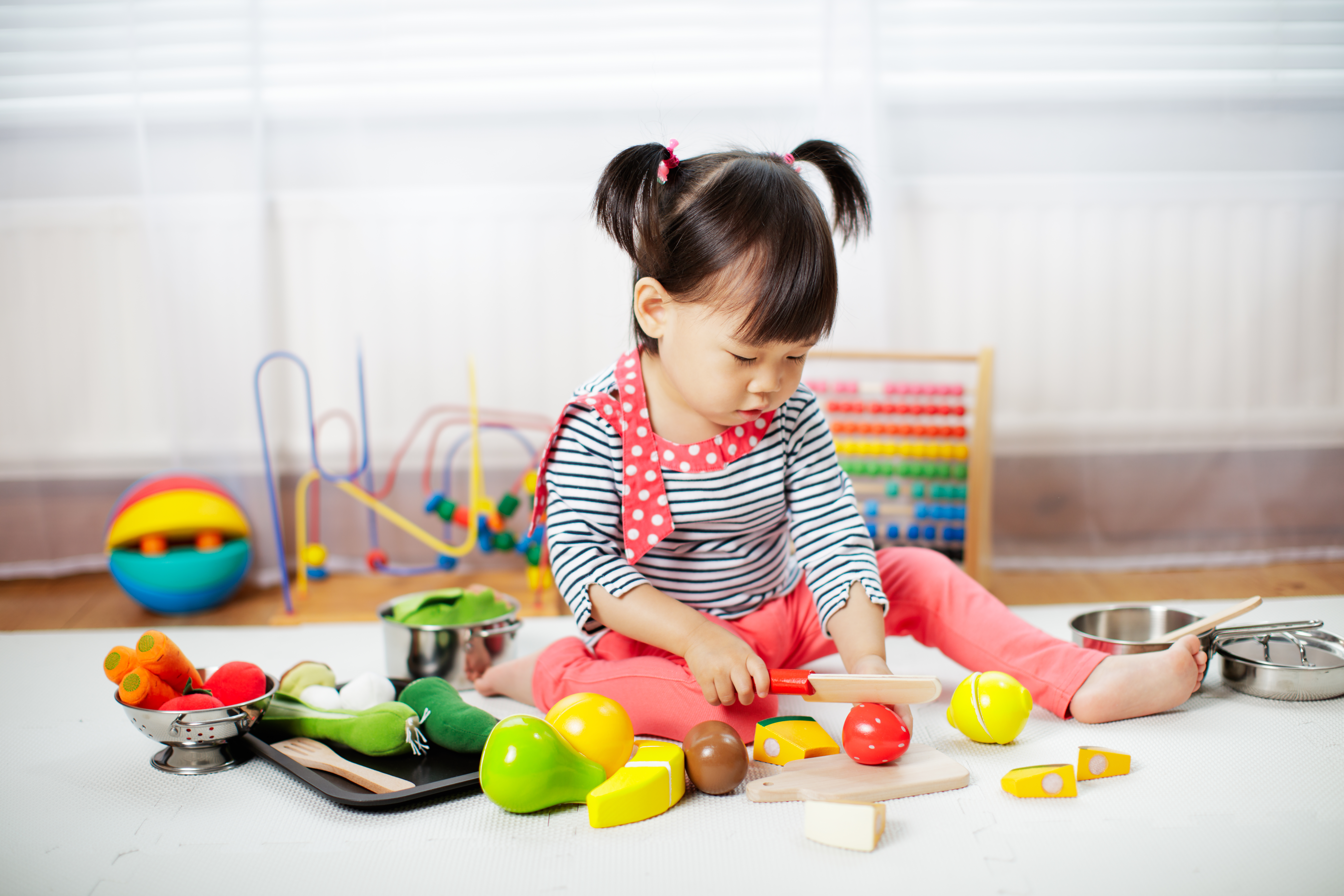
2020年11月6日
在日常生活中如何讓嬰幼兒增加詞彙
心理學家指出:"2 歲 至 6 歲,是語言發展的黃金時期",Little Habs 一向志力創造優良的學習環境,故邀請了言語治療師高展鵬先生為家長講解 "在日常生活中如何增加嬰幼兒詞彙"
高SIR提出了正常語言發展階段,一歲是單語期,即是第一個真正有意義的字;二歲是雙語期 (如 : 『媽媽,汪汪』/『媽媽—車』)詞彙量累積50至100個,開始組織短句,但有少量語法錯誤。三歲左右便開始說簡單句子(如 :『我要朱古力』)。往後,詞彙及組句急速增長,到五至六歲已能掌日常用詞及語法規則,就像成年人一般對話。短短六年期間,由單字發展到對話,語言發展黃金期真的很奇妙!
要增加嬰幼兒詞彙,家長可以將物件或動作在孩子眼前展示,不斷減慢說話及加強語氣地重複詞彙,有句口訣: "GO SLOW AND SHOW, ASK LESS AND STRESS"
另外家長應該選擇哪些玩具?科學研究指出遊戲技巧(PLAY SKILL) 跟 認知發展(COGNITION) 有關。高SIR建議家長可增加象徵類 、想像類及規則類遊戲。
象徵類遊戲是以現實表徵物假裝成想像中的物件,如:用刀切水果,並餵給小狗食
想像類遊戲是扮演故事角色的造型、語氣及對白,如﹕醫生及病人、超人及怪獸
規則類遊戲是要有共同遵守約定的規則, 如:捉迷藏、過三關、UNO、猜包剪揼
這次講座破天荒以Zoom在網上進行,無阻家長的學習意向,大家透過聊天室互動分享,獲益良多。最後高SIR建議家長除了要把握語言黃金期,增加孩子的詞彙之外,還要欣賞孩子的純真及可愛,好好享受陪伴小朋友成長的奇妙旅程。
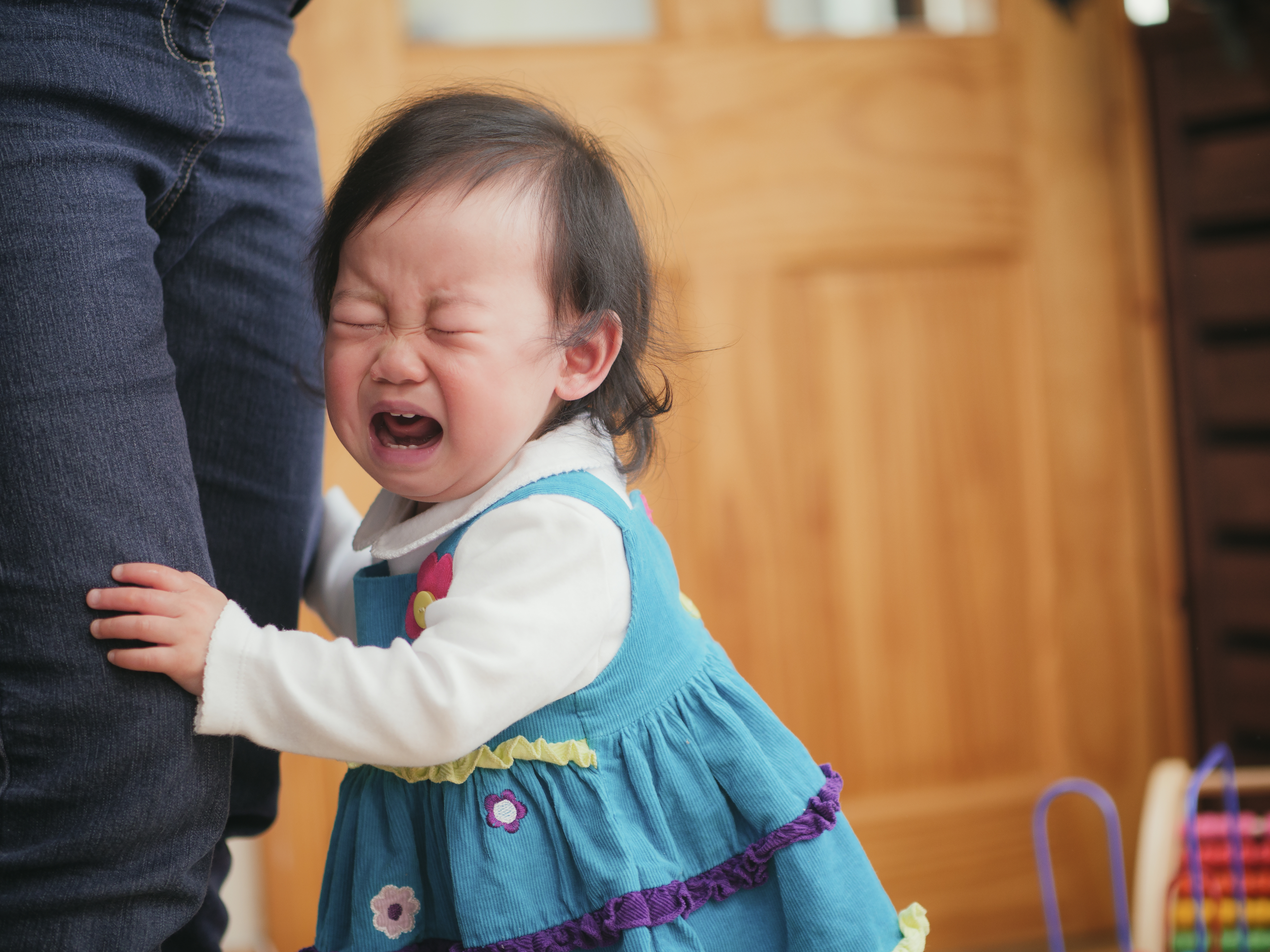
2020年8月3日
如何過渡新生的入園分離焦慮
孩子面對分離感到焦慮,是因為他們還未明白分開了,父母還是會回來的。分離時,孩子在焦慮中成長,學懂如何自處,並慢慢發現原來與其他人相處交流也很好玩。父母可在家中與孩子玩「分離遊戲」,以循序漸進方式,漸漸加長分離的時間及距離。若時間及場地許可,在正式上學前,帶孩子參觀學校及跟老師見面,最少兩三次,讓孩子熟習環境。在分離及重聚時,父母都要表現輕鬆,不要把焦慮反映於面上,我們要讓孩子感受到,短暫分離並沒什麼大不了。父母亦宜在跟孩子分離時,安排活動讓自己忙起來,減輕自己的焦慮感覺。了解到分離雖然難過,卻是讓孩子邁向獨立,跟世界連繫的重要一步,我們便能坦然面對。
陳雅文女士
私人執業心理學家
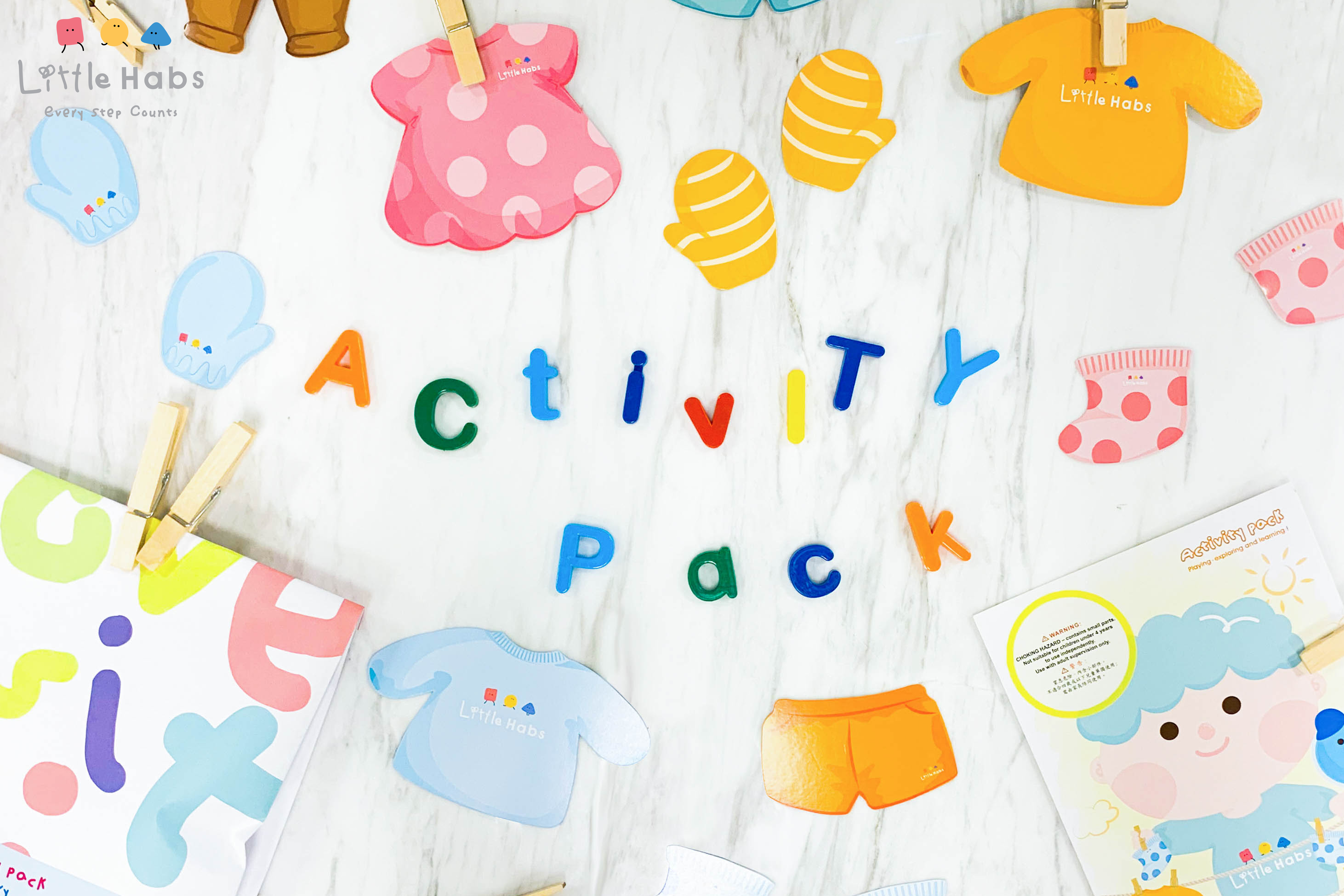
2020年7月18日
Activity Pack
Little Habs全新親子多元感官探索教材隆重推出,結合多元化遊戲及根據不同程度配合老師遊戲影片教學,同一遊戲多種玩法,安坐家中亦能輕鬆學習! 建立幼兒大、小手肌訓練,增強感官探索,同時滿足兒童玩耍、發掘及探索世界的需要。
https://forms.gle/51vrjTLgSqngcC6N9">立即https://forms.gle/V264xKb8nSdZhL156">購買https://forms.gle/51vrjTLgSqngcC6N9">立即https://forms.gle/V264xKb8nSdZhL156">購買

2020年7月17日
Online Learning : Good or Bad for Kids?
Online learning has not been an easy transition for children, especially children in the Early childhood age group. Making the transition from physical to virtual learning may be frowned upon by parents, but with the ever changing COVID situation and city-wide school shut down could this be the norm?
What parents need to understand is that if we do not attend classes whether online or physical, we will be hampering the child’s brain development. Especially in early childhood, the child’s brain develops every day. So, we as educators / parents cannot afford to miss even a single day. For brain development, children need to receive the right kind of stimulation, which only teachers can provide. They have been trained to provide age-appropriate stimulation.
Younger children, between the ages of 2 to 5 should have no more than 30-60 mins of screen time each day. Not all screen time is equal. When a child is attending an interactive phonics or cognitive activity this is considered good screen time. Keeping the TV on all day or letting your child continuously watch tv is examples of bad screen time.
Many educational experts have said, “e-learning, we should embrace it” “It’s time to connect with our children and it’s time for us to be creative”. Parents needs to forget everything they know about traditional schooling. Learning is fun, so it’s important to make it interactive which many online classes are offering.
It’s all about having the right mindset.
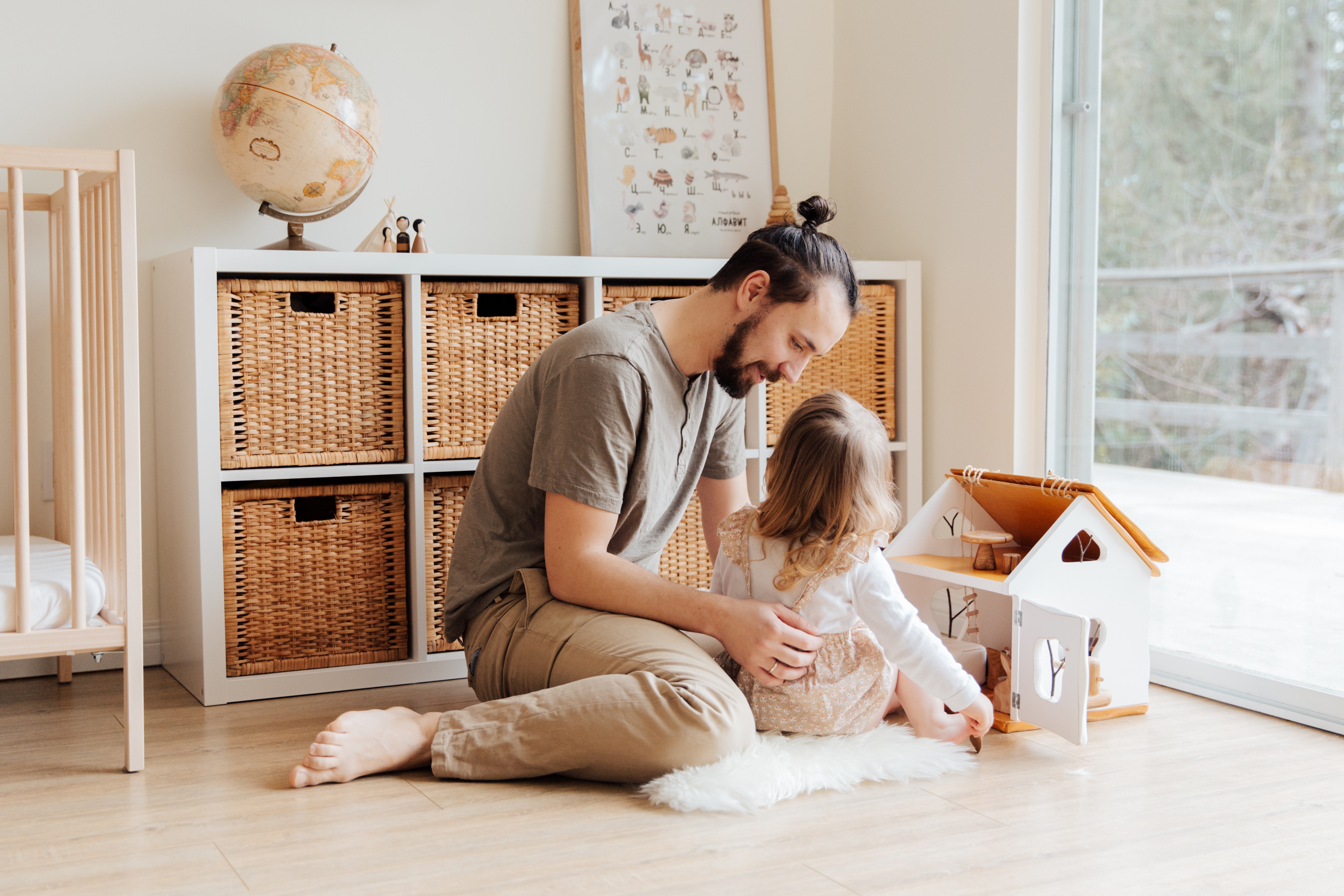
2020年6月5日
What is best for your child?
Raising a child is never easy. There are millions of ways to raise a child but which way is “the best way” and who says so?
We often get unsolicited comments from other moms on how to better care for our own children., giving out useful tips on what is best for them, listing out the Dos and Don’ts. But how would they know what is best for your children and their needs?
Turns out there isn’t really a definite answer to the question. No one can ever tell you what is best for your child except yourself. Let your child explore themselves, learn at their own pace, and as parents, what we can do is to be there when they need us, guide them through every step of the way. No doubt that it is always great and helpful to have advice and tips along the way, but never let them become a hindrance on your parenting journey. Things that work for others might not work for you. Raising a child is so much more than just doing math. Sometimes its not as simple as 1 + 1 = 2.
Have confidence in yourself and your children, and let them be their unique selves and be the best version of themselves.

2022年12月22日
如何令BB一覺瞓天光?
如何令BB一覺瞓天光
孩子睡得好、睡得夠,對學習、記憶、創意都是關鍵!研究指出,如小孩睡眠不足,會影響健康及發育,更重要是影響長大後的認知能力、學習能力及令脾氣暴躁。
其實睡眠是一種科學 :
只要認識各年齡層的作息時間及睡覺總時數,掌握小孩生理時鐘,已經成功了一半!合適的睡眠環境,可以令小孩有比較好的睡眠質素。另外,亦可幫小孩逐漸減少依賴大人或奶嘴的安撫,學習自入行睡。
只需用合適的方法,相信每一位健康的孩子都有能力一覺瞓天光的!

2020年7月18日
Activity Pack
Little Habs全新親子多元感官探索教材隆重推出,結合多元化遊戲及根據不同程度配合老師遊戲影片教學,同一遊戲多種玩法,安坐家中亦能輕鬆學習! 建立幼兒大、小手肌訓練,增強感官探索,同時滿足兒童玩耍、發掘及探索世界的需要。
https://forms.gle/51vrjTLgSqngcC6N9">立即https://forms.gle/V264xKb8nSdZhL156">購買https://forms.gle/51vrjTLgSqngcC6N9">立即https://forms.gle/V264xKb8nSdZhL156">購買

2023年1月11日
認識有特殊需要的孩子
及早識別與介入能讓有特殊需要的孩子健康成長的關鍵。教育心理學家唐瑩博士將講解有關自閉症及專注力不足/過度活躍症的識別,以及與家長分享一些家居訓練的策略。家長親子小貼士如下:
透過親子遊戲以提升患有自閉症幼兒的與人共同參與的社交能力:
家長與孩子面對面坐, 盡量保持同樣高度以提升眼神接觸的機會
由孩子作主, 選擇他喜歡的玩具以提升孩子動機與家長互動
家長模仿孩子動作, 讓孩子感到家長對自己的肯定, 提升孩子注意家長的參與
家長模仿孩子還未掌握的社交行為, 例如有禮貌地要求與分享等
透過有效指示以提升患有專注力不足/過度活躍症的孩子跟從的機會:
每次只給一個指示
簡短具體
指示明確說明孩子應該做的事
以尊重的態度給予指示

2020年6月5日
What is best for your child?
Raising a child is never easy. There are millions of ways to raise a child but which way is “the best way” and who says so?
We often get unsolicited comments from other moms on how to better care for our own children., giving out useful tips on what is best for them, listing out the Dos and Don’ts. But how would they know what is best for your children and their needs?
Turns out there isn’t really a definite answer to the question. No one can ever tell you what is best for your child except yourself. Let your child explore themselves, learn at their own pace, and as parents, what we can do is to be there when they need us, guide them through every step of the way. No doubt that it is always great and helpful to have advice and tips along the way, but never let them become a hindrance on your parenting journey. Things that work for others might not work for you. Raising a child is so much more than just doing math. Sometimes its not as simple as 1 + 1 = 2.
Have confidence in yourself and your children, and let them be their unique selves and be the best version of themselves.

培養孩子的專注力
專注力是孩子各方發展的重要條件,長遠影響他們的學習能力、人際關係,甚至是將來於學校和工作的表現。教育心理學家江雅琪姑娘在講座中講解有關幼兒的專注力發展和家長於當中的角色。以下為講座撮要:
幼兒的專注力受著自身、家庭及環境因素互相影響
與專注力息息相關的自身因素包括生理(如腦部發展及身體狀態)及心理(如記憶力和語言理解能力)發展程度,故此良好的飲食習慣、充足睡眠和適量的靜、動態活動非常重要
安排活動及設置遊戲空間時,家長應在「重複、減少干擾」以及「新鮮、增潤經驗」之間取得平衡,同時留意孩子的能力、當刻的狀態和反應
幼兒「不專注」的表現可能來自難以用言語表達的需要,家長可留意孩子的身體語言(如面部表情、視線、動作)以及前後發生的事情去了解和回應他們的需要

2023年1月11日
認識有特殊需要的孩子
及早識別與介入能讓有特殊需要的孩子健康成長的關鍵。教育心理學家唐瑩博士將講解有關自閉症及專注力不足/過度活躍症的識別,以及與家長分享一些家居訓練的策略。家長親子小貼士如下:
透過親子遊戲以提升患有自閉症幼兒的與人共同參與的社交能力:
家長與孩子面對面坐, 盡量保持同樣高度以提升眼神接觸的機會
由孩子作主, 選擇他喜歡的玩具以提升孩子動機與家長互動
家長模仿孩子動作, 讓孩子感到家長對自己的肯定, 提升孩子注意家長的參與
家長模仿孩子還未掌握的社交行為, 例如有禮貌地要求與分享等
透過有效指示以提升患有專注力不足/過度活躍症的孩子跟從的機會:
每次只給一個指示
簡短具體
指示明確說明孩子應該做的事
以尊重的態度給予指示

2021年2月27日
如何建立幼兒安全感
依據數十年來的依附關係研究,美國的三名學者創造了安全圈視覺圖,它讓我們可以很容易看到孩子的行為和需要。
讓我們先在圈上的那雙手開始,照顧者就是那雙手。孩子需要我們比他更大,比他更堅強,讓他們感到安全,因為他們知道有人會願意,也有能力保護他們。同時,孩子也需要我們對他們仁慈,我們的智慧要用在如何給孩子合乎情理的慈愛,這才能夠建立起安全感。
接著,我們一起了解上半圈上孩子的需要。有安全感的孩子很容易對外界產生好奇心,在他們要出發去探索時,他們需要感覺到我們全力支持。
「看顧我」
當我們的孩子在探索時,有時候他們只需要你待在那裡,不需要做些什麼,這是「看顧我」時刻。表面上看來我們好像沒做什麼,但實際上因著我們輕鬆自在的陪伴,孩子就能安心的發現與學習。
「以我為喜」
我們的孩子需要知道有他我們很欣喜,不為什麼,只因為有他,他可以安心做自己,這是「以我為喜」時刻。
「幫助我」
有時候在探索時孩子需要我們的幫助,在這「幫助我」時刻,孩子要的是剛剛好的幫助,足夠他們學習完成一項新事務就可以了。
「與我同樂」
在某些時刻,孩子只不過是要我們與他同樂,或是和他一起玩,這是在安全圈上的「與我同樂」時刻。這樣的分享時刻,讓孩子接收到的信息是我們和他在一起,而且對任何他所做的事情和學習都有興趣。
當孩子感到疲倦、害怕、不舒服時,他會對探索失去興趣,他們現在走到安全圈的下半部。
「保護我」
有些時候,孩子要回到我們身邊,是因為他害怕,這是安全圈上的「保護我」時刻。
「安慰我」
一天當中孩子常常需要我們的慈愛與安撫,這是安全圈上的「安慰我」時刻。
「以我為喜」
「以我為喜」也在下半圈出現,是因為我們的孩子需要我們無論在他出去或是回來時,都一樣喜歡他,完全的接納他。
「調整我情緒」
最後孩子有些時候需要我們幫助他們理解他的情緒,這是「調整我情緒」時刻。我們教導孩子,他不需要孤單面對情緒,我們會與他同在時,他就會學習到信任與分享情緒,而不會被情緒壓垮,這樣的學習將會陪伴著他的一生。
在每一圈的來去中,照顧者和孩子的關係會變得愈來愈穩固,我們的孩子也會愈來愈有安全感。
Cooper, Hoffman & Powell. (2009). COS-P Facilitator DVD Manual 5.0. Spokane, USA: Author

2020年7月17日
Online Learning : Good or Bad for Kids?
Online learning has not been an easy transition for children, especially children in the Early childhood age group. Making the transition from physical to virtual learning may be frowned upon by parents, but with the ever changing COVID situation and city-wide school shut down could this be the norm?
What parents need to understand is that if we do not attend classes whether online or physical, we will be hampering the child’s brain development. Especially in early childhood, the child’s brain develops every day. So, we as educators / parents cannot afford to miss even a single day. For brain development, children need to receive the right kind of stimulation, which only teachers can provide. They have been trained to provide age-appropriate stimulation.
Younger children, between the ages of 2 to 5 should have no more than 30-60 mins of screen time each day. Not all screen time is equal. When a child is attending an interactive phonics or cognitive activity this is considered good screen time. Keeping the TV on all day or letting your child continuously watch tv is examples of bad screen time.
Many educational experts have said, “e-learning, we should embrace it” “It’s time to connect with our children and it’s time for us to be creative”. Parents needs to forget everything they know about traditional schooling. Learning is fun, so it’s important to make it interactive which many online classes are offering.
It’s all about having the right mindset.

2023年10月18日
認識嫉妒這情緒
每個人也有嫉妒的時候,但要知道嫉妒是個非常複雜的情緒狀態,當中蘊含着生氣、傷心、焦慮、怨恨及羞愧等情緒。孩子們難以用言語表達這個複雜的情緒,所以往往以問題行為來表達。在表達藝術的形式中,孩子往往能透過非言語的方式表達自己的想法和感受,讓治療師明白行為背後箇中的因由。
「嫉妒小孩」的問題行為:
- 攻擊行為
- 搗蛋
- 引人注意
- 倒退行為(例子:變得愛哭、變得黏人、進餐時間拖長要求為食、容易尿床,等等)
爸媽請緊記:
- 嫉妒是自然的情緒,不用抑壓。
- 我們會有嫉妒情緒,是因為我們很重視和珍惜與對方的關係,害怕這段關係受到威脅。
- 檢視家中成員的關係,想想如何在生活中作出改變並與孩子一起尋找新的相處方法。
爸媽可以:
- 心理學家研究指出,加強兒童的情緒調節以及建立情緒和社交能力,可以改善他們與姐妹和兄弟的關係(Kennedy&Kramer,2008)。所以家長可多與孩子練習情緒調節四步曲:覺察、命名、表達和調節。
- 細心留意孩子之間的正面互動,並把握機會將孩子背後的心意說出來,真人孩子之間的感情。例子:弟弟主動提出一起玩,父母可以翻譯說:「弟弟喜歡你,想和你一起玩。」
- 緊記說話後別留有尾巴,令對方難受。例如:「你睇吓家姐幾錫你,你就冇家姐心!」

2023年7月20日
培養孩子抗逆力
什麼是抗逆力?
抗逆力是適應逆境的能力,使人能在壓力出現時保持心理健康、從逆境中復原過來,以及在復原後得以成長。
那麼我們可以做什麼來提升孩子面對逆境的能力?答案便是提升他們的幸福感。
我們一起看看提升幸福感的「APP」小貼士吧!
A:成就感 ( Accomplishment)
從小培養孩子不怕困難,努力不懈的精神,讓他們透過完成任務來獲得大大小小的成就感。
P:良好的親子關係 (Parent-child relationship)
孩子能夠與別人建立及維繫良好的關係能增加生活中幸福的感覺。而親子關係就是在早期幼兒人際關係中扮演著最重要的一環。
P:正面情緒 (Positive Emotion)
正面情緒幫助我們減低壓力所帶來的負面影響。透過使人愉快、增加歸屬感和感恩之心的活動,可讓孩子感覺良好並更能克服困難。

2023年6月13日
如何處理孩子及父母的分離焦慮
遇到孩子不願意與父母分開的情況時,父母切記不宜趁孩子不注意時偷偷離開,令孩子更害怕父母會突然離開,對父母產生不信任;或相反地,亦不宜因為孩子哭泣而遷就孩子,繼續陪伴或停留,令孩子誤以為哭泣是可以令父母停留的方法。
父母首先要用穩定的情緒,向孩子表示明白及體諒,父母可以說:「你要與媽媽分開獨自上學,你覺得不開心。」用簡單及清晰的言語幫助孩子反映感受,令孩子感到被明白。然後,清晰地告訴孩子你什麼時候會回來:「我會於12點/你吃完茶點後回來接你。」具體地告訴孩子於什麼時間便可以再見到父母。經過重複及穩定地告別,孩子便能逐漸建立起「父母會回來接我」的信心,快樂地與父母告別。

培養孩子的專注力
專注力是孩子各方發展的重要條件,長遠影響他們的學習能力、人際關係,甚至是將來於學校和工作的表現。教育心理學家江雅琪姑娘在講座中講解有關幼兒的專注力發展和家長於當中的角色。以下為講座撮要:
幼兒的專注力受著自身、家庭及環境因素互相影響
與專注力息息相關的自身因素包括生理(如腦部發展及身體狀態)及心理(如記憶力和語言理解能力)發展程度,故此良好的飲食習慣、充足睡眠和適量的靜、動態活動非常重要
安排活動及設置遊戲空間時,家長應在「重複、減少干擾」以及「新鮮、增潤經驗」之間取得平衡,同時留意孩子的能力、當刻的狀態和反應
幼兒「不專注」的表現可能來自難以用言語表達的需要,家長可留意孩子的身體語言(如面部表情、視線、動作)以及前後發生的事情去了解和回應他們的需要

2023年4月22日
What does the term ‘gross motor skills’ mean?
Participating in activities to improve gross motor skills is integral for a child’s development and can occur naturally in everyday life. Gross motor skills can be a very broad term that covers many things. This article will help to explain what the term means and what you can do at home to develop these skills in your children.
What does the term ‘gross motor skills’ mean?
Gross motor skills are abilities that involve the larger muscles in the arms, legs and torso. Using these muscle groups links to other abilities including:
• Balance
• Coordination
• Body awareness
• Physical strength
• Reaction time
Gross motor skills allow children to participate successfully in activities at home, school and in the community. Children improve their gross motor skills naturally over time and with practice, some may be faster than others and that is okay. Your child will have their own developmental journey, the best thing you can do is encourage and support your child along the way.

2023年3月10日
Gross motor skill activities
Below are examples of two activities you can do with your children at home to help them improve their gross motor skills. Remember that practice and patience go hand in hand when helping our children to learn new skills.
Stepping ‘stones’:
This activity can improve your child’s balance, coordination, physical strength and body awareness.
Create a path at home using different objects for your child to step on. You can buy different variations of this activity online or you can create it yourself at home.
For younger children, create flat steps such as circles of coloured paper (secured to the floor to ensure they don’t slip). Start by using big circles and reduce the circles in size as your child progresses. Place the circles close together and encourage your child to step on the circles with two feet, you can ask them to stomp their feet on the circles to help them understand the activity. Once they understand the premise, try to encourage them to step onto the circles one foot at a time.
As your children grow older and their gross motor skills improve, you can use 3D objects to integrate height into the activity and this will improve their balance. These objects can include balance beams, boxes, small chairs and anything else you deem safe and fit for this activity. To build their confidence, hold your child’s hand to help them across and slowly let them become more independent as they become more confident.
Remember to supervise your children at all times while practicing as accidents can happen.
Playing ball:
The size of the ball and activity can vary according to your child’s age/ ability. This activity will work on your child’s reaction time, coordination, body awareness and physical strength.
For younger children, start by rolling a soft ball towards them. Let them explore the ball to see how it moves and to help them feel more comfortable. Over time, encourage them to try pushing/ rolling the ball, in any direction at first and then toward someone or something. As your children grow older and their motor skills develop, introduce throwing the ball. Start by practicing to release the ball, then you can move on to throwing into or toward things. When your children feel confident with a soft ball, move onto slightly harder ones that will improve their physical strength.
We hope you find this article useful in working on your child’s gross motor skills at home.

2023年2月28日
如何增強孩子的服從及合作性
很多父母於孩子出生時願望都是希望孩子能夠快樂健康。但隨着孩子年齡漸長,父母對孩子的期望漸漸增加,要求也越來越高。這是可以理解及合理的,但父母不宜經常認為自己的孩子很有問題,認為自己的孩子特別難教,但卻不為意自己的要求其實越來越高。有時候,孩子的行為問題是成長階段中必然出現的事,以三歲的孩子為例周身郁、不專心、未能自己食飯也是成長中的必經階段。若家長過分的操控或大罵孩子一場,說出一些責備恐嚇孩子的話,不但破壞孩子的自我形象,亦破壞彼此之間的關係,更難令孩子心悅成服地聽從父母的話。
良好的親子關係才是改善問題的基礎。要孩子聽話合作並不需要用打罵的方法,只需多留意孩子的優點,多給予肯定及讚賞;遇上問題行為時,家長可以嘗試用「後果」代替「懲罰」,懲罰一詞的感覺往往帶來更大的負面情緒。家長可語氣溫和堅定地告訴孩子做錯事帶來的後果,例如扣減孩子的零食或娛樂時間,堅定地執行已說明的後果,孩子便能學習為自己的行為承擔後果。

2023年1月11日
認識有特殊需要的孩子
及早識別與介入能讓有特殊需要的孩子健康成長的關鍵。教育心理學家唐瑩博士將講解有關自閉症及專注力不足/過度活躍症的識別,以及與家長分享一些家居訓練的策略。家長親子小貼士如下:
透過親子遊戲以提升患有自閉症幼兒的與人共同參與的社交能力:
家長與孩子面對面坐, 盡量保持同樣高度以提升眼神接觸的機會
由孩子作主, 選擇他喜歡的玩具以提升孩子動機與家長互動
家長模仿孩子動作, 讓孩子感到家長對自己的肯定, 提升孩子注意家長的參與
家長模仿孩子還未掌握的社交行為, 例如有禮貌地要求與分享等
透過有效指示以提升患有專注力不足/過度活躍症的孩子跟從的機會:
每次只給一個指示
簡短具體
指示明確說明孩子應該做的事
以尊重的態度給予指示

2022年12月22日
如何令BB一覺瞓天光?
如何令BB一覺瞓天光
孩子睡得好、睡得夠,對學習、記憶、創意都是關鍵!研究指出,如小孩睡眠不足,會影響健康及發育,更重要是影響長大後的認知能力、學習能力及令脾氣暴躁。
其實睡眠是一種科學 :
只要認識各年齡層的作息時間及睡覺總時數,掌握小孩生理時鐘,已經成功了一半!合適的睡眠環境,可以令小孩有比較好的睡眠質素。另外,亦可幫小孩逐漸減少依賴大人或奶嘴的安撫,學習自入行睡。
只需用合適的方法,相信每一位健康的孩子都有能力一覺瞓天光的!

2021年9月27日
”Share the Joy” - Friend referral Program
於2021年9月28日至10月20日前成功推薦頭4位好友,新生*好友可享港幣300元報讀11月-12月恆常課程或興趣班;9月-10月家長即於1月-2月課程獲得高達港幣1,200元回贈!好友邀請計劃詳情:
朋友禮遇
以舊生電郵登記,新生可獲港幣300回贈
適用課程: 11月-12月課程恆常課程或興趣班
https://click.mailerlite.com/link/c/">*受有關條款及細則約束

2021年2月27日
如何建立幼兒安全感
依據數十年來的依附關係研究,美國的三名學者創造了安全圈視覺圖,它讓我們可以很容易看到孩子的行為和需要。
讓我們先在圈上的那雙手開始,照顧者就是那雙手。孩子需要我們比他更大,比他更堅強,讓他們感到安全,因為他們知道有人會願意,也有能力保護他們。同時,孩子也需要我們對他們仁慈,我們的智慧要用在如何給孩子合乎情理的慈愛,這才能夠建立起安全感。
接著,我們一起了解上半圈上孩子的需要。有安全感的孩子很容易對外界產生好奇心,在他們要出發去探索時,他們需要感覺到我們全力支持。
「看顧我」
當我們的孩子在探索時,有時候他們只需要你待在那裡,不需要做些什麼,這是「看顧我」時刻。表面上看來我們好像沒做什麼,但實際上因著我們輕鬆自在的陪伴,孩子就能安心的發現與學習。
「以我為喜」
我們的孩子需要知道有他我們很欣喜,不為什麼,只因為有他,他可以安心做自己,這是「以我為喜」時刻。
「幫助我」
有時候在探索時孩子需要我們的幫助,在這「幫助我」時刻,孩子要的是剛剛好的幫助,足夠他們學習完成一項新事務就可以了。
「與我同樂」
在某些時刻,孩子只不過是要我們與他同樂,或是和他一起玩,這是在安全圈上的「與我同樂」時刻。這樣的分享時刻,讓孩子接收到的信息是我們和他在一起,而且對任何他所做的事情和學習都有興趣。
當孩子感到疲倦、害怕、不舒服時,他會對探索失去興趣,他們現在走到安全圈的下半部。
「保護我」
有些時候,孩子要回到我們身邊,是因為他害怕,這是安全圈上的「保護我」時刻。
「安慰我」
一天當中孩子常常需要我們的慈愛與安撫,這是安全圈上的「安慰我」時刻。
「以我為喜」
「以我為喜」也在下半圈出現,是因為我們的孩子需要我們無論在他出去或是回來時,都一樣喜歡他,完全的接納他。
「調整我情緒」
最後孩子有些時候需要我們幫助他們理解他的情緒,這是「調整我情緒」時刻。我們教導孩子,他不需要孤單面對情緒,我們會與他同在時,他就會學習到信任與分享情緒,而不會被情緒壓垮,這樣的學習將會陪伴著他的一生。
在每一圈的來去中,照顧者和孩子的關係會變得愈來愈穩固,我們的孩子也會愈來愈有安全感。
Cooper, Hoffman & Powell. (2009). COS-P Facilitator DVD Manual 5.0. Spokane, USA: Author

2021年1月28日
如何應對"Trouble Twos"
當孩子慢慢踏入兩歲的階段,我們發現孩子的自主意識開始萌芽,好像任何事也「對着幹」,作為父母我們可以如何成為一個「情理兼備」、「恩威並重」的父母?
首先,在處理任何行為問題前父母先不急着解決問題,而是先利用嘴巴幫忙孩子說出他們的感受。例如我們可以說「你好嬲哥哥搶你粒糖」、「你見到你不唔認識嘅人覺得到好驚。」、「你好唔開心我哋要離開公園。」當父母可以多利用嘴巴幫助孩子表達感受時,孩子會感覺到父母的明白和支持之餘,慢慢地亦會學習如何用言語表達自的感受和想法,大吵大鬧的行為問題亦相對減少。
當父母幫助孩子表達感受後,孩子的行為仍然超越可接受範圍時,父母便應該設立限制。例如當孩子想出手打父母時,父母先不要大聲責罵孩子,父母可說:「我不是用來打的,你可以選擇打枕頭或者打咕𠱸。」清晰地說明指令後提供兩個選擇,讓喜愛話事的兩歲孩子可以在我們提供的選擇中學習為自己做決定,既滿足孩子喜歡自己話事的需要,亦可限制孩子的行為不超出可容忍的範圍。
若果孩子仍然不聽從的指令,父母可先冷靜自己,然後重複以上步驟。孩子的行為問題並不是三言兩語便可以解決,父母可嘗試多幫助孩子表達他們的情緒,只要孩子的情緒被舒緩,他們才會更願意合作,父母所學的技巧才能得以以應用。

2020年12月28日
Right and wrong ways to praise your kids
"A parent's job is to shape children's behavior"
Children love to be told how wonderful they are (doesn't everyone?) and how proud we are of them. But when it comes to praise, there's more on the line than just boosting self-esteem.
Parents should say ten positive things to their children for every one negative response. It’s not that difficult, and it doesn’t have to be elaborate, suggestions on comments could originate from a behaviour you like when you observe it.
Ways of Praise
- Look Them in the Eye
The way you give praise is just as important or even more important than the words you use. Use a warm, nurturing tone, and ensure you make eye contact and when possible get down to their level, face to face.
- Choose Words Wisely
When it comes to praise, it’s important to use language that is age appropriate for your child’s development stage
- Applaud Each Child’s Individual Strength
Kids can’t help but compare themselves to others. Parents should focus on individual strengths of their child and offer extra encouragement. This approach helps children learn that everyone has strengths, and that they are all different
Praising gives children the message that they are accepted and appreciated, but overpraising, "you're the best," "you're the smartest," "you're the most wonderful child", sets them up for eventual disappointment. Experts believe that over-praising can make children feel the need to seek approval from others all the time. But if you offer frequent encouragement, and save the praise for when it really counts, your child will be more resilient and confident because of it.

2020年11月6日
在日常生活中如何讓嬰幼兒增加詞彙
心理學家指出:"2 歲 至 6 歲,是語言發展的黃金時期",Little Habs 一向志力創造優良的學習環境,故邀請了言語治療師高展鵬先生為家長講解 "在日常生活中如何增加嬰幼兒詞彙"
高SIR提出了正常語言發展階段,一歲是單語期,即是第一個真正有意義的字;二歲是雙語期 (如 : 『媽媽,汪汪』/『媽媽—車』)詞彙量累積50至100個,開始組織短句,但有少量語法錯誤。三歲左右便開始說簡單句子(如 :『我要朱古力』)。往後,詞彙及組句急速增長,到五至六歲已能掌日常用詞及語法規則,就像成年人一般對話。短短六年期間,由單字發展到對話,語言發展黃金期真的很奇妙!
要增加嬰幼兒詞彙,家長可以將物件或動作在孩子眼前展示,不斷減慢說話及加強語氣地重複詞彙,有句口訣: "GO SLOW AND SHOW, ASK LESS AND STRESS"
另外家長應該選擇哪些玩具?科學研究指出遊戲技巧(PLAY SKILL) 跟 認知發展(COGNITION) 有關。高SIR建議家長可增加象徵類 、想像類及規則類遊戲。
象徵類遊戲是以現實表徵物假裝成想像中的物件,如:用刀切水果,並餵給小狗食
想像類遊戲是扮演故事角色的造型、語氣及對白,如﹕醫生及病人、超人及怪獸
規則類遊戲是要有共同遵守約定的規則, 如:捉迷藏、過三關、UNO、猜包剪揼
這次講座破天荒以Zoom在網上進行,無阻家長的學習意向,大家透過聊天室互動分享,獲益良多。最後高SIR建議家長除了要把握語言黃金期,增加孩子的詞彙之外,還要欣賞孩子的純真及可愛,好好享受陪伴小朋友成長的奇妙旅程。

2020年7月17日
Online Learning : Good or Bad for Kids?
Online learning has not been an easy transition for children, especially children in the Early childhood age group. Making the transition from physical to virtual learning may be frowned upon by parents, but with the ever changing COVID situation and city-wide school shut down could this be the norm?
What parents need to understand is that if we do not attend classes whether online or physical, we will be hampering the child’s brain development. Especially in early childhood, the child’s brain develops every day. So, we as educators / parents cannot afford to miss even a single day. For brain development, children need to receive the right kind of stimulation, which only teachers can provide. They have been trained to provide age-appropriate stimulation.
Younger children, between the ages of 2 to 5 should have no more than 30-60 mins of screen time each day. Not all screen time is equal. When a child is attending an interactive phonics or cognitive activity this is considered good screen time. Keeping the TV on all day or letting your child continuously watch tv is examples of bad screen time.
Many educational experts have said, “e-learning, we should embrace it” “It’s time to connect with our children and it’s time for us to be creative”. Parents needs to forget everything they know about traditional schooling. Learning is fun, so it’s important to make it interactive which many online classes are offering.
It’s all about having the right mindset.

2023年10月18日
認識嫉妒這情緒
每個人也有嫉妒的時候,但要知道嫉妒是個非常複雜的情緒狀態,當中蘊含着生氣、傷心、焦慮、怨恨及羞愧等情緒。孩子們難以用言語表達這個複雜的情緒,所以往往以問題行為來表達。在表達藝術的形式中,孩子往往能透過非言語的方式表達自己的想法和感受,讓治療師明白行為背後箇中的因由。
「嫉妒小孩」的問題行為:
- 攻擊行為
- 搗蛋
- 引人注意
- 倒退行為(例子:變得愛哭、變得黏人、進餐時間拖長要求為食、容易尿床,等等)
爸媽請緊記:
- 嫉妒是自然的情緒,不用抑壓。
- 我們會有嫉妒情緒,是因為我們很重視和珍惜與對方的關係,害怕這段關係受到威脅。
- 檢視家中成員的關係,想想如何在生活中作出改變並與孩子一起尋找新的相處方法。
爸媽可以:
- 心理學家研究指出,加強兒童的情緒調節以及建立情緒和社交能力,可以改善他們與姐妹和兄弟的關係(Kennedy&Kramer,2008)。所以家長可多與孩子練習情緒調節四步曲:覺察、命名、表達和調節。
- 細心留意孩子之間的正面互動,並把握機會將孩子背後的心意說出來,真人孩子之間的感情。例子:弟弟主動提出一起玩,父母可以翻譯說:「弟弟喜歡你,想和你一起玩。」
- 緊記說話後別留有尾巴,令對方難受。例如:「你睇吓家姐幾錫你,你就冇家姐心!」

2021年1月28日
如何應對"Trouble Twos"
當孩子慢慢踏入兩歲的階段,我們發現孩子的自主意識開始萌芽,好像任何事也「對着幹」,作為父母我們可以如何成為一個「情理兼備」、「恩威並重」的父母?
首先,在處理任何行為問題前父母先不急着解決問題,而是先利用嘴巴幫忙孩子說出他們的感受。例如我們可以說「你好嬲哥哥搶你粒糖」、「你見到你不唔認識嘅人覺得到好驚。」、「你好唔開心我哋要離開公園。」當父母可以多利用嘴巴幫助孩子表達感受時,孩子會感覺到父母的明白和支持之餘,慢慢地亦會學習如何用言語表達自的感受和想法,大吵大鬧的行為問題亦相對減少。
當父母幫助孩子表達感受後,孩子的行為仍然超越可接受範圍時,父母便應該設立限制。例如當孩子想出手打父母時,父母先不要大聲責罵孩子,父母可說:「我不是用來打的,你可以選擇打枕頭或者打咕𠱸。」清晰地說明指令後提供兩個選擇,讓喜愛話事的兩歲孩子可以在我們提供的選擇中學習為自己做決定,既滿足孩子喜歡自己話事的需要,亦可限制孩子的行為不超出可容忍的範圍。
若果孩子仍然不聽從的指令,父母可先冷靜自己,然後重複以上步驟。孩子的行為問題並不是三言兩語便可以解決,父母可嘗試多幫助孩子表達他們的情緒,只要孩子的情緒被舒緩,他們才會更願意合作,父母所學的技巧才能得以以應用。

2021年9月27日
”Share the Joy” - Friend referral Program
於2021年9月28日至10月20日前成功推薦頭4位好友,新生*好友可享港幣300元報讀11月-12月恆常課程或興趣班;9月-10月家長即於1月-2月課程獲得高達港幣1,200元回贈!好友邀請計劃詳情:
朋友禮遇
以舊生電郵登記,新生可獲港幣300回贈
適用課程: 11月-12月課程恆常課程或興趣班
https://click.mailerlite.com/link/c/">*受有關條款及細則約束

2020年7月18日
Activity Pack
Little Habs全新親子多元感官探索教材隆重推出,結合多元化遊戲及根據不同程度配合老師遊戲影片教學,同一遊戲多種玩法,安坐家中亦能輕鬆學習! 建立幼兒大、小手肌訓練,增強感官探索,同時滿足兒童玩耍、發掘及探索世界的需要。
https://forms.gle/51vrjTLgSqngcC6N9">立即https://forms.gle/V264xKb8nSdZhL156">購買https://forms.gle/51vrjTLgSqngcC6N9">立即https://forms.gle/V264xKb8nSdZhL156">購買

2023年4月22日
What does the term ‘gross motor skills’ mean?
Participating in activities to improve gross motor skills is integral for a child’s development and can occur naturally in everyday life. Gross motor skills can be a very broad term that covers many things. This article will help to explain what the term means and what you can do at home to develop these skills in your children.
What does the term ‘gross motor skills’ mean?
Gross motor skills are abilities that involve the larger muscles in the arms, legs and torso. Using these muscle groups links to other abilities including:
• Balance
• Coordination
• Body awareness
• Physical strength
• Reaction time
Gross motor skills allow children to participate successfully in activities at home, school and in the community. Children improve their gross motor skills naturally over time and with practice, some may be faster than others and that is okay. Your child will have their own developmental journey, the best thing you can do is encourage and support your child along the way.

2023年3月10日
Gross motor skill activities
Below are examples of two activities you can do with your children at home to help them improve their gross motor skills. Remember that practice and patience go hand in hand when helping our children to learn new skills.
Stepping ‘stones’:
This activity can improve your child’s balance, coordination, physical strength and body awareness.
Create a path at home using different objects for your child to step on. You can buy different variations of this activity online or you can create it yourself at home.
For younger children, create flat steps such as circles of coloured paper (secured to the floor to ensure they don’t slip). Start by using big circles and reduce the circles in size as your child progresses. Place the circles close together and encourage your child to step on the circles with two feet, you can ask them to stomp their feet on the circles to help them understand the activity. Once they understand the premise, try to encourage them to step onto the circles one foot at a time.
As your children grow older and their gross motor skills improve, you can use 3D objects to integrate height into the activity and this will improve their balance. These objects can include balance beams, boxes, small chairs and anything else you deem safe and fit for this activity. To build their confidence, hold your child’s hand to help them across and slowly let them become more independent as they become more confident.
Remember to supervise your children at all times while practicing as accidents can happen.
Playing ball:
The size of the ball and activity can vary according to your child’s age/ ability. This activity will work on your child’s reaction time, coordination, body awareness and physical strength.
For younger children, start by rolling a soft ball towards them. Let them explore the ball to see how it moves and to help them feel more comfortable. Over time, encourage them to try pushing/ rolling the ball, in any direction at first and then toward someone or something. As your children grow older and their motor skills develop, introduce throwing the ball. Start by practicing to release the ball, then you can move on to throwing into or toward things. When your children feel confident with a soft ball, move onto slightly harder ones that will improve their physical strength.
We hope you find this article useful in working on your child’s gross motor skills at home.

2020年8月3日
如何過渡新生的入園分離焦慮
孩子面對分離感到焦慮,是因為他們還未明白分開了,父母還是會回來的。分離時,孩子在焦慮中成長,學懂如何自處,並慢慢發現原來與其他人相處交流也很好玩。父母可在家中與孩子玩「分離遊戲」,以循序漸進方式,漸漸加長分離的時間及距離。若時間及場地許可,在正式上學前,帶孩子參觀學校及跟老師見面,最少兩三次,讓孩子熟習環境。在分離及重聚時,父母都要表現輕鬆,不要把焦慮反映於面上,我們要讓孩子感受到,短暫分離並沒什麼大不了。父母亦宜在跟孩子分離時,安排活動讓自己忙起來,減輕自己的焦慮感覺。了解到分離雖然難過,卻是讓孩子邁向獨立,跟世界連繫的重要一步,我們便能坦然面對。
陳雅文女士
私人執業心理學家

2020年11月6日
在日常生活中如何讓嬰幼兒增加詞彙
心理學家指出:"2 歲 至 6 歲,是語言發展的黃金時期",Little Habs 一向志力創造優良的學習環境,故邀請了言語治療師高展鵬先生為家長講解 "在日常生活中如何增加嬰幼兒詞彙"
高SIR提出了正常語言發展階段,一歲是單語期,即是第一個真正有意義的字;二歲是雙語期 (如 : 『媽媽,汪汪』/『媽媽—車』)詞彙量累積50至100個,開始組織短句,但有少量語法錯誤。三歲左右便開始說簡單句子(如 :『我要朱古力』)。往後,詞彙及組句急速增長,到五至六歲已能掌日常用詞及語法規則,就像成年人一般對話。短短六年期間,由單字發展到對話,語言發展黃金期真的很奇妙!
要增加嬰幼兒詞彙,家長可以將物件或動作在孩子眼前展示,不斷減慢說話及加強語氣地重複詞彙,有句口訣: "GO SLOW AND SHOW, ASK LESS AND STRESS"
另外家長應該選擇哪些玩具?科學研究指出遊戲技巧(PLAY SKILL) 跟 認知發展(COGNITION) 有關。高SIR建議家長可增加象徵類 、想像類及規則類遊戲。
象徵類遊戲是以現實表徵物假裝成想像中的物件,如:用刀切水果,並餵給小狗食
想像類遊戲是扮演故事角色的造型、語氣及對白,如﹕醫生及病人、超人及怪獸
規則類遊戲是要有共同遵守約定的規則, 如:捉迷藏、過三關、UNO、猜包剪揼
這次講座破天荒以Zoom在網上進行,無阻家長的學習意向,大家透過聊天室互動分享,獲益良多。最後高SIR建議家長除了要把握語言黃金期,增加孩子的詞彙之外,還要欣賞孩子的純真及可愛,好好享受陪伴小朋友成長的奇妙旅程。

2023年10月18日
認識嫉妒這情緒
每個人也有嫉妒的時候,但要知道嫉妒是個非常複雜的情緒狀態,當中蘊含着生氣、傷心、焦慮、怨恨及羞愧等情緒。孩子們難以用言語表達這個複雜的情緒,所以往往以問題行為來表達。在表達藝術的形式中,孩子往往能透過非言語的方式表達自己的想法和感受,讓治療師明白行為背後箇中的因由。
「嫉妒小孩」的問題行為:
- 攻擊行為
- 搗蛋
- 引人注意
- 倒退行為(例子:變得愛哭、變得黏人、進餐時間拖長要求為食、容易尿床,等等)
爸媽請緊記:
- 嫉妒是自然的情緒,不用抑壓。
- 我們會有嫉妒情緒,是因為我們很重視和珍惜與對方的關係,害怕這段關係受到威脅。
- 檢視家中成員的關係,想想如何在生活中作出改變並與孩子一起尋找新的相處方法。
爸媽可以:
- 心理學家研究指出,加強兒童的情緒調節以及建立情緒和社交能力,可以改善他們與姐妹和兄弟的關係(Kennedy&Kramer,2008)。所以家長可多與孩子練習情緒調節四步曲:覺察、命名、表達和調節。
- 細心留意孩子之間的正面互動,並把握機會將孩子背後的心意說出來,真人孩子之間的感情。例子:弟弟主動提出一起玩,父母可以翻譯說:「弟弟喜歡你,想和你一起玩。」
- 緊記說話後別留有尾巴,令對方難受。例如:「你睇吓家姐幾錫你,你就冇家姐心!」

2023年7月20日
培養孩子抗逆力
什麼是抗逆力?
抗逆力是適應逆境的能力,使人能在壓力出現時保持心理健康、從逆境中復原過來,以及在復原後得以成長。
那麼我們可以做什麼來提升孩子面對逆境的能力?答案便是提升他們的幸福感。
我們一起看看提升幸福感的「APP」小貼士吧!
A:成就感 ( Accomplishment)
從小培養孩子不怕困難,努力不懈的精神,讓他們透過完成任務來獲得大大小小的成就感。
P:良好的親子關係 (Parent-child relationship)
孩子能夠與別人建立及維繫良好的關係能增加生活中幸福的感覺。而親子關係就是在早期幼兒人際關係中扮演著最重要的一環。
P:正面情緒 (Positive Emotion)
正面情緒幫助我們減低壓力所帶來的負面影響。透過使人愉快、增加歸屬感和感恩之心的活動,可讓孩子感覺良好並更能克服困難。

2023年4月22日
What does the term ‘gross motor skills’ mean?
Participating in activities to improve gross motor skills is integral for a child’s development and can occur naturally in everyday life. Gross motor skills can be a very broad term that covers many things. This article will help to explain what the term means and what you can do at home to develop these skills in your children.
What does the term ‘gross motor skills’ mean?
Gross motor skills are abilities that involve the larger muscles in the arms, legs and torso. Using these muscle groups links to other abilities including:
• Balance
• Coordination
• Body awareness
• Physical strength
• Reaction time
Gross motor skills allow children to participate successfully in activities at home, school and in the community. Children improve their gross motor skills naturally over time and with practice, some may be faster than others and that is okay. Your child will have their own developmental journey, the best thing you can do is encourage and support your child along the way.

2023年3月10日
Gross motor skill activities
Below are examples of two activities you can do with your children at home to help them improve their gross motor skills. Remember that practice and patience go hand in hand when helping our children to learn new skills.
Stepping ‘stones’:
This activity can improve your child’s balance, coordination, physical strength and body awareness.
Create a path at home using different objects for your child to step on. You can buy different variations of this activity online or you can create it yourself at home.
For younger children, create flat steps such as circles of coloured paper (secured to the floor to ensure they don’t slip). Start by using big circles and reduce the circles in size as your child progresses. Place the circles close together and encourage your child to step on the circles with two feet, you can ask them to stomp their feet on the circles to help them understand the activity. Once they understand the premise, try to encourage them to step onto the circles one foot at a time.
As your children grow older and their gross motor skills improve, you can use 3D objects to integrate height into the activity and this will improve their balance. These objects can include balance beams, boxes, small chairs and anything else you deem safe and fit for this activity. To build their confidence, hold your child’s hand to help them across and slowly let them become more independent as they become more confident.
Remember to supervise your children at all times while practicing as accidents can happen.
Playing ball:
The size of the ball and activity can vary according to your child’s age/ ability. This activity will work on your child’s reaction time, coordination, body awareness and physical strength.
For younger children, start by rolling a soft ball towards them. Let them explore the ball to see how it moves and to help them feel more comfortable. Over time, encourage them to try pushing/ rolling the ball, in any direction at first and then toward someone or something. As your children grow older and their motor skills develop, introduce throwing the ball. Start by practicing to release the ball, then you can move on to throwing into or toward things. When your children feel confident with a soft ball, move onto slightly harder ones that will improve their physical strength.
We hope you find this article useful in working on your child’s gross motor skills at home.

2023年2月28日
如何增強孩子的服從及合作性
很多父母於孩子出生時願望都是希望孩子能夠快樂健康。但隨着孩子年齡漸長,父母對孩子的期望漸漸增加,要求也越來越高。這是可以理解及合理的,但父母不宜經常認為自己的孩子很有問題,認為自己的孩子特別難教,但卻不為意自己的要求其實越來越高。有時候,孩子的行為問題是成長階段中必然出現的事,以三歲的孩子為例周身郁、不專心、未能自己食飯也是成長中的必經階段。若家長過分的操控或大罵孩子一場,說出一些責備恐嚇孩子的話,不但破壞孩子的自我形象,亦破壞彼此之間的關係,更難令孩子心悅成服地聽從父母的話。
良好的親子關係才是改善問題的基礎。要孩子聽話合作並不需要用打罵的方法,只需多留意孩子的優點,多給予肯定及讚賞;遇上問題行為時,家長可以嘗試用「後果」代替「懲罰」,懲罰一詞的感覺往往帶來更大的負面情緒。家長可語氣溫和堅定地告訴孩子做錯事帶來的後果,例如扣減孩子的零食或娛樂時間,堅定地執行已說明的後果,孩子便能學習為自己的行為承擔後果。

2023年1月11日
認識有特殊需要的孩子
及早識別與介入能讓有特殊需要的孩子健康成長的關鍵。教育心理學家唐瑩博士將講解有關自閉症及專注力不足/過度活躍症的識別,以及與家長分享一些家居訓練的策略。家長親子小貼士如下:
透過親子遊戲以提升患有自閉症幼兒的與人共同參與的社交能力:
家長與孩子面對面坐, 盡量保持同樣高度以提升眼神接觸的機會
由孩子作主, 選擇他喜歡的玩具以提升孩子動機與家長互動
家長模仿孩子動作, 讓孩子感到家長對自己的肯定, 提升孩子注意家長的參與
家長模仿孩子還未掌握的社交行為, 例如有禮貌地要求與分享等
透過有效指示以提升患有專注力不足/過度活躍症的孩子跟從的機會:
每次只給一個指示
簡短具體
指示明確說明孩子應該做的事
以尊重的態度給予指示

2023年2月28日
如何增強孩子的服從及合作性
很多父母於孩子出生時願望都是希望孩子能夠快樂健康。但隨着孩子年齡漸長,父母對孩子的期望漸漸增加,要求也越來越高。這是可以理解及合理的,但父母不宜經常認為自己的孩子很有問題,認為自己的孩子特別難教,但卻不為意自己的要求其實越來越高。有時候,孩子的行為問題是成長階段中必然出現的事,以三歲的孩子為例周身郁、不專心、未能自己食飯也是成長中的必經階段。若家長過分的操控或大罵孩子一場,說出一些責備恐嚇孩子的話,不但破壞孩子的自我形象,亦破壞彼此之間的關係,更難令孩子心悅成服地聽從父母的話。
良好的親子關係才是改善問題的基礎。要孩子聽話合作並不需要用打罵的方法,只需多留意孩子的優點,多給予肯定及讚賞;遇上問題行為時,家長可以嘗試用「後果」代替「懲罰」,懲罰一詞的感覺往往帶來更大的負面情緒。家長可語氣溫和堅定地告訴孩子做錯事帶來的後果,例如扣減孩子的零食或娛樂時間,堅定地執行已說明的後果,孩子便能學習為自己的行為承擔後果。

2020年7月17日
Online Learning : Good or Bad for Kids?
Online learning has not been an easy transition for children, especially children in the Early childhood age group. Making the transition from physical to virtual learning may be frowned upon by parents, but with the ever changing COVID situation and city-wide school shut down could this be the norm?
What parents need to understand is that if we do not attend classes whether online or physical, we will be hampering the child’s brain development. Especially in early childhood, the child’s brain develops every day. So, we as educators / parents cannot afford to miss even a single day. For brain development, children need to receive the right kind of stimulation, which only teachers can provide. They have been trained to provide age-appropriate stimulation.
Younger children, between the ages of 2 to 5 should have no more than 30-60 mins of screen time each day. Not all screen time is equal. When a child is attending an interactive phonics or cognitive activity this is considered good screen time. Keeping the TV on all day or letting your child continuously watch tv is examples of bad screen time.
Many educational experts have said, “e-learning, we should embrace it” “It’s time to connect with our children and it’s time for us to be creative”. Parents needs to forget everything they know about traditional schooling. Learning is fun, so it’s important to make it interactive which many online classes are offering.
It’s all about having the right mindset.

2023年7月20日
培養孩子抗逆力
什麼是抗逆力?
抗逆力是適應逆境的能力,使人能在壓力出現時保持心理健康、從逆境中復原過來,以及在復原後得以成長。
那麼我們可以做什麼來提升孩子面對逆境的能力?答案便是提升他們的幸福感。
我們一起看看提升幸福感的「APP」小貼士吧!
A:成就感 ( Accomplishment)
從小培養孩子不怕困難,努力不懈的精神,讓他們透過完成任務來獲得大大小小的成就感。
P:良好的親子關係 (Parent-child relationship)
孩子能夠與別人建立及維繫良好的關係能增加生活中幸福的感覺。而親子關係就是在早期幼兒人際關係中扮演著最重要的一環。
P:正面情緒 (Positive Emotion)
正面情緒幫助我們減低壓力所帶來的負面影響。透過使人愉快、增加歸屬感和感恩之心的活動,可讓孩子感覺良好並更能克服困難。

培養孩子的專注力
專注力是孩子各方發展的重要條件,長遠影響他們的學習能力、人際關係,甚至是將來於學校和工作的表現。教育心理學家江雅琪姑娘在講座中講解有關幼兒的專注力發展和家長於當中的角色。以下為講座撮要:
幼兒的專注力受著自身、家庭及環境因素互相影響
與專注力息息相關的自身因素包括生理(如腦部發展及身體狀態)及心理(如記憶力和語言理解能力)發展程度,故此良好的飲食習慣、充足睡眠和適量的靜、動態活動非常重要
安排活動及設置遊戲空間時,家長應在「重複、減少干擾」以及「新鮮、增潤經驗」之間取得平衡,同時留意孩子的能力、當刻的狀態和反應
幼兒「不專注」的表現可能來自難以用言語表達的需要,家長可留意孩子的身體語言(如面部表情、視線、動作)以及前後發生的事情去了解和回應他們的需要

2023年2月28日
如何增強孩子的服從及合作性
很多父母於孩子出生時願望都是希望孩子能夠快樂健康。但隨着孩子年齡漸長,父母對孩子的期望漸漸增加,要求也越來越高。這是可以理解及合理的,但父母不宜經常認為自己的孩子很有問題,認為自己的孩子特別難教,但卻不為意自己的要求其實越來越高。有時候,孩子的行為問題是成長階段中必然出現的事,以三歲的孩子為例周身郁、不專心、未能自己食飯也是成長中的必經階段。若家長過分的操控或大罵孩子一場,說出一些責備恐嚇孩子的話,不但破壞孩子的自我形象,亦破壞彼此之間的關係,更難令孩子心悅成服地聽從父母的話。
良好的親子關係才是改善問題的基礎。要孩子聽話合作並不需要用打罵的方法,只需多留意孩子的優點,多給予肯定及讚賞;遇上問題行為時,家長可以嘗試用「後果」代替「懲罰」,懲罰一詞的感覺往往帶來更大的負面情緒。家長可語氣溫和堅定地告訴孩子做錯事帶來的後果,例如扣減孩子的零食或娛樂時間,堅定地執行已說明的後果,孩子便能學習為自己的行為承擔後果。

2023年7月20日
培養孩子抗逆力
什麼是抗逆力?
抗逆力是適應逆境的能力,使人能在壓力出現時保持心理健康、從逆境中復原過來,以及在復原後得以成長。
那麼我們可以做什麼來提升孩子面對逆境的能力?答案便是提升他們的幸福感。
我們一起看看提升幸福感的「APP」小貼士吧!
A:成就感 ( Accomplishment)
從小培養孩子不怕困難,努力不懈的精神,讓他們透過完成任務來獲得大大小小的成就感。
P:良好的親子關係 (Parent-child relationship)
孩子能夠與別人建立及維繫良好的關係能增加生活中幸福的感覺。而親子關係就是在早期幼兒人際關係中扮演著最重要的一環。
P:正面情緒 (Positive Emotion)
正面情緒幫助我們減低壓力所帶來的負面影響。透過使人愉快、增加歸屬感和感恩之心的活動,可讓孩子感覺良好並更能克服困難。

培養孩子的專注力
專注力是孩子各方發展的重要條件,長遠影響他們的學習能力、人際關係,甚至是將來於學校和工作的表現。教育心理學家江雅琪姑娘在講座中講解有關幼兒的專注力發展和家長於當中的角色。以下為講座撮要:
幼兒的專注力受著自身、家庭及環境因素互相影響
與專注力息息相關的自身因素包括生理(如腦部發展及身體狀態)及心理(如記憶力和語言理解能力)發展程度,故此良好的飲食習慣、充足睡眠和適量的靜、動態活動非常重要
安排活動及設置遊戲空間時,家長應在「重複、減少干擾」以及「新鮮、增潤經驗」之間取得平衡,同時留意孩子的能力、當刻的狀態和反應
幼兒「不專注」的表現可能來自難以用言語表達的需要,家長可留意孩子的身體語言(如面部表情、視線、動作)以及前後發生的事情去了解和回應他們的需要

2023年2月28日
如何增強孩子的服從及合作性
很多父母於孩子出生時願望都是希望孩子能夠快樂健康。但隨着孩子年齡漸長,父母對孩子的期望漸漸增加,要求也越來越高。這是可以理解及合理的,但父母不宜經常認為自己的孩子很有問題,認為自己的孩子特別難教,但卻不為意自己的要求其實越來越高。有時候,孩子的行為問題是成長階段中必然出現的事,以三歲的孩子為例周身郁、不專心、未能自己食飯也是成長中的必經階段。若家長過分的操控或大罵孩子一場,說出一些責備恐嚇孩子的話,不但破壞孩子的自我形象,亦破壞彼此之間的關係,更難令孩子心悅成服地聽從父母的話。
良好的親子關係才是改善問題的基礎。要孩子聽話合作並不需要用打罵的方法,只需多留意孩子的優點,多給予肯定及讚賞;遇上問題行為時,家長可以嘗試用「後果」代替「懲罰」,懲罰一詞的感覺往往帶來更大的負面情緒。家長可語氣溫和堅定地告訴孩子做錯事帶來的後果,例如扣減孩子的零食或娛樂時間,堅定地執行已說明的後果,孩子便能學習為自己的行為承擔後果。

2020年12月28日
Right and wrong ways to praise your kids
"A parent's job is to shape children's behavior"
Children love to be told how wonderful they are (doesn't everyone?) and how proud we are of them. But when it comes to praise, there's more on the line than just boosting self-esteem.
Parents should say ten positive things to their children for every one negative response. It’s not that difficult, and it doesn’t have to be elaborate, suggestions on comments could originate from a behaviour you like when you observe it.
Ways of Praise
- Look Them in the Eye
The way you give praise is just as important or even more important than the words you use. Use a warm, nurturing tone, and ensure you make eye contact and when possible get down to their level, face to face.
- Choose Words Wisely
When it comes to praise, it’s important to use language that is age appropriate for your child’s development stage
- Applaud Each Child’s Individual Strength
Kids can’t help but compare themselves to others. Parents should focus on individual strengths of their child and offer extra encouragement. This approach helps children learn that everyone has strengths, and that they are all different
Praising gives children the message that they are accepted and appreciated, but overpraising, "you're the best," "you're the smartest," "you're the most wonderful child", sets them up for eventual disappointment. Experts believe that over-praising can make children feel the need to seek approval from others all the time. But if you offer frequent encouragement, and save the praise for when it really counts, your child will be more resilient and confident because of it.

2023年7月20日
培養孩子抗逆力
什麼是抗逆力?
抗逆力是適應逆境的能力,使人能在壓力出現時保持心理健康、從逆境中復原過來,以及在復原後得以成長。
那麼我們可以做什麼來提升孩子面對逆境的能力?答案便是提升他們的幸福感。
我們一起看看提升幸福感的「APP」小貼士吧!
A:成就感 ( Accomplishment)
從小培養孩子不怕困難,努力不懈的精神,讓他們透過完成任務來獲得大大小小的成就感。
P:良好的親子關係 (Parent-child relationship)
孩子能夠與別人建立及維繫良好的關係能增加生活中幸福的感覺。而親子關係就是在早期幼兒人際關係中扮演著最重要的一環。
P:正面情緒 (Positive Emotion)
正面情緒幫助我們減低壓力所帶來的負面影響。透過使人愉快、增加歸屬感和感恩之心的活動,可讓孩子感覺良好並更能克服困難。

2020年12月28日
Right and wrong ways to praise your kids
"A parent's job is to shape children's behavior"
Children love to be told how wonderful they are (doesn't everyone?) and how proud we are of them. But when it comes to praise, there's more on the line than just boosting self-esteem.
Parents should say ten positive things to their children for every one negative response. It’s not that difficult, and it doesn’t have to be elaborate, suggestions on comments could originate from a behaviour you like when you observe it.
Ways of Praise
- Look Them in the Eye
The way you give praise is just as important or even more important than the words you use. Use a warm, nurturing tone, and ensure you make eye contact and when possible get down to their level, face to face.
- Choose Words Wisely
When it comes to praise, it’s important to use language that is age appropriate for your child’s development stage
- Applaud Each Child’s Individual Strength
Kids can’t help but compare themselves to others. Parents should focus on individual strengths of their child and offer extra encouragement. This approach helps children learn that everyone has strengths, and that they are all different
Praising gives children the message that they are accepted and appreciated, but overpraising, "you're the best," "you're the smartest," "you're the most wonderful child", sets them up for eventual disappointment. Experts believe that over-praising can make children feel the need to seek approval from others all the time. But if you offer frequent encouragement, and save the praise for when it really counts, your child will be more resilient and confident because of it.

2023年6月13日
如何處理孩子及父母的分離焦慮
遇到孩子不願意與父母分開的情況時,父母切記不宜趁孩子不注意時偷偷離開,令孩子更害怕父母會突然離開,對父母產生不信任;或相反地,亦不宜因為孩子哭泣而遷就孩子,繼續陪伴或停留,令孩子誤以為哭泣是可以令父母停留的方法。
父母首先要用穩定的情緒,向孩子表示明白及體諒,父母可以說:「你要與媽媽分開獨自上學,你覺得不開心。」用簡單及清晰的言語幫助孩子反映感受,令孩子感到被明白。然後,清晰地告訴孩子你什麼時候會回來:「我會於12點/你吃完茶點後回來接你。」具體地告訴孩子於什麼時間便可以再見到父母。經過重複及穩定地告別,孩子便能逐漸建立起「父母會回來接我」的信心,快樂地與父母告別。

2020年8月3日
如何過渡新生的入園分離焦慮
孩子面對分離感到焦慮,是因為他們還未明白分開了,父母還是會回來的。分離時,孩子在焦慮中成長,學懂如何自處,並慢慢發現原來與其他人相處交流也很好玩。父母可在家中與孩子玩「分離遊戲」,以循序漸進方式,漸漸加長分離的時間及距離。若時間及場地許可,在正式上學前,帶孩子參觀學校及跟老師見面,最少兩三次,讓孩子熟習環境。在分離及重聚時,父母都要表現輕鬆,不要把焦慮反映於面上,我們要讓孩子感受到,短暫分離並沒什麼大不了。父母亦宜在跟孩子分離時,安排活動讓自己忙起來,減輕自己的焦慮感覺。了解到分離雖然難過,卻是讓孩子邁向獨立,跟世界連繫的重要一步,我們便能坦然面對。
陳雅文女士
私人執業心理學家

2020年11月6日
在日常生活中如何讓嬰幼兒增加詞彙
心理學家指出:"2 歲 至 6 歲,是語言發展的黃金時期",Little Habs 一向志力創造優良的學習環境,故邀請了言語治療師高展鵬先生為家長講解 "在日常生活中如何增加嬰幼兒詞彙"
高SIR提出了正常語言發展階段,一歲是單語期,即是第一個真正有意義的字;二歲是雙語期 (如 : 『媽媽,汪汪』/『媽媽—車』)詞彙量累積50至100個,開始組織短句,但有少量語法錯誤。三歲左右便開始說簡單句子(如 :『我要朱古力』)。往後,詞彙及組句急速增長,到五至六歲已能掌日常用詞及語法規則,就像成年人一般對話。短短六年期間,由單字發展到對話,語言發展黃金期真的很奇妙!
要增加嬰幼兒詞彙,家長可以將物件或動作在孩子眼前展示,不斷減慢說話及加強語氣地重複詞彙,有句口訣: "GO SLOW AND SHOW, ASK LESS AND STRESS"
另外家長應該選擇哪些玩具?科學研究指出遊戲技巧(PLAY SKILL) 跟 認知發展(COGNITION) 有關。高SIR建議家長可增加象徵類 、想像類及規則類遊戲。
象徵類遊戲是以現實表徵物假裝成想像中的物件,如:用刀切水果,並餵給小狗食
想像類遊戲是扮演故事角色的造型、語氣及對白,如﹕醫生及病人、超人及怪獸
規則類遊戲是要有共同遵守約定的規則, 如:捉迷藏、過三關、UNO、猜包剪揼
這次講座破天荒以Zoom在網上進行,無阻家長的學習意向,大家透過聊天室互動分享,獲益良多。最後高SIR建議家長除了要把握語言黃金期,增加孩子的詞彙之外,還要欣賞孩子的純真及可愛,好好享受陪伴小朋友成長的奇妙旅程。

2021年1月28日
如何應對"Trouble Twos"
當孩子慢慢踏入兩歲的階段,我們發現孩子的自主意識開始萌芽,好像任何事也「對着幹」,作為父母我們可以如何成為一個「情理兼備」、「恩威並重」的父母?
首先,在處理任何行為問題前父母先不急着解決問題,而是先利用嘴巴幫忙孩子說出他們的感受。例如我們可以說「你好嬲哥哥搶你粒糖」、「你見到你不唔認識嘅人覺得到好驚。」、「你好唔開心我哋要離開公園。」當父母可以多利用嘴巴幫助孩子表達感受時,孩子會感覺到父母的明白和支持之餘,慢慢地亦會學習如何用言語表達自的感受和想法,大吵大鬧的行為問題亦相對減少。
當父母幫助孩子表達感受後,孩子的行為仍然超越可接受範圍時,父母便應該設立限制。例如當孩子想出手打父母時,父母先不要大聲責罵孩子,父母可說:「我不是用來打的,你可以選擇打枕頭或者打咕𠱸。」清晰地說明指令後提供兩個選擇,讓喜愛話事的兩歲孩子可以在我們提供的選擇中學習為自己做決定,既滿足孩子喜歡自己話事的需要,亦可限制孩子的行為不超出可容忍的範圍。
若果孩子仍然不聽從的指令,父母可先冷靜自己,然後重複以上步驟。孩子的行為問題並不是三言兩語便可以解決,父母可嘗試多幫助孩子表達他們的情緒,只要孩子的情緒被舒緩,他們才會更願意合作,父母所學的技巧才能得以以應用。

2023年6月13日
如何處理孩子及父母的分離焦慮
遇到孩子不願意與父母分開的情況時,父母切記不宜趁孩子不注意時偷偷離開,令孩子更害怕父母會突然離開,對父母產生不信任;或相反地,亦不宜因為孩子哭泣而遷就孩子,繼續陪伴或停留,令孩子誤以為哭泣是可以令父母停留的方法。
父母首先要用穩定的情緒,向孩子表示明白及體諒,父母可以說:「你要與媽媽分開獨自上學,你覺得不開心。」用簡單及清晰的言語幫助孩子反映感受,令孩子感到被明白。然後,清晰地告訴孩子你什麼時候會回來:「我會於12點/你吃完茶點後回來接你。」具體地告訴孩子於什麼時間便可以再見到父母。經過重複及穩定地告別,孩子便能逐漸建立起「父母會回來接我」的信心,快樂地與父母告別。

2023年4月22日
What does the term ‘gross motor skills’ mean?
Participating in activities to improve gross motor skills is integral for a child’s development and can occur naturally in everyday life. Gross motor skills can be a very broad term that covers many things. This article will help to explain what the term means and what you can do at home to develop these skills in your children.
What does the term ‘gross motor skills’ mean?
Gross motor skills are abilities that involve the larger muscles in the arms, legs and torso. Using these muscle groups links to other abilities including:
• Balance
• Coordination
• Body awareness
• Physical strength
• Reaction time
Gross motor skills allow children to participate successfully in activities at home, school and in the community. Children improve their gross motor skills naturally over time and with practice, some may be faster than others and that is okay. Your child will have their own developmental journey, the best thing you can do is encourage and support your child along the way.

2023年3月10日
Gross motor skill activities
Below are examples of two activities you can do with your children at home to help them improve their gross motor skills. Remember that practice and patience go hand in hand when helping our children to learn new skills.
Stepping ‘stones’:
This activity can improve your child’s balance, coordination, physical strength and body awareness.
Create a path at home using different objects for your child to step on. You can buy different variations of this activity online or you can create it yourself at home.
For younger children, create flat steps such as circles of coloured paper (secured to the floor to ensure they don’t slip). Start by using big circles and reduce the circles in size as your child progresses. Place the circles close together and encourage your child to step on the circles with two feet, you can ask them to stomp their feet on the circles to help them understand the activity. Once they understand the premise, try to encourage them to step onto the circles one foot at a time.
As your children grow older and their gross motor skills improve, you can use 3D objects to integrate height into the activity and this will improve their balance. These objects can include balance beams, boxes, small chairs and anything else you deem safe and fit for this activity. To build their confidence, hold your child’s hand to help them across and slowly let them become more independent as they become more confident.
Remember to supervise your children at all times while practicing as accidents can happen.
Playing ball:
The size of the ball and activity can vary according to your child’s age/ ability. This activity will work on your child’s reaction time, coordination, body awareness and physical strength.
For younger children, start by rolling a soft ball towards them. Let them explore the ball to see how it moves and to help them feel more comfortable. Over time, encourage them to try pushing/ rolling the ball, in any direction at first and then toward someone or something. As your children grow older and their motor skills develop, introduce throwing the ball. Start by practicing to release the ball, then you can move on to throwing into or toward things. When your children feel confident with a soft ball, move onto slightly harder ones that will improve their physical strength.
We hope you find this article useful in working on your child’s gross motor skills at home.

2022年12月22日
如何令BB一覺瞓天光?
如何令BB一覺瞓天光
孩子睡得好、睡得夠,對學習、記憶、創意都是關鍵!研究指出,如小孩睡眠不足,會影響健康及發育,更重要是影響長大後的認知能力、學習能力及令脾氣暴躁。
其實睡眠是一種科學 :
只要認識各年齡層的作息時間及睡覺總時數,掌握小孩生理時鐘,已經成功了一半!合適的睡眠環境,可以令小孩有比較好的睡眠質素。另外,亦可幫小孩逐漸減少依賴大人或奶嘴的安撫,學習自入行睡。
只需用合適的方法,相信每一位健康的孩子都有能力一覺瞓天光的!

2023年7月20日
培養孩子抗逆力
什麼是抗逆力?
抗逆力是適應逆境的能力,使人能在壓力出現時保持心理健康、從逆境中復原過來,以及在復原後得以成長。
那麼我們可以做什麼來提升孩子面對逆境的能力?答案便是提升他們的幸福感。
我們一起看看提升幸福感的「APP」小貼士吧!
A:成就感 ( Accomplishment)
從小培養孩子不怕困難,努力不懈的精神,讓他們透過完成任務來獲得大大小小的成就感。
P:良好的親子關係 (Parent-child relationship)
孩子能夠與別人建立及維繫良好的關係能增加生活中幸福的感覺。而親子關係就是在早期幼兒人際關係中扮演著最重要的一環。
P:正面情緒 (Positive Emotion)
正面情緒幫助我們減低壓力所帶來的負面影響。透過使人愉快、增加歸屬感和感恩之心的活動,可讓孩子感覺良好並更能克服困難。

2023年2月28日
如何增強孩子的服從及合作性
很多父母於孩子出生時願望都是希望孩子能夠快樂健康。但隨着孩子年齡漸長,父母對孩子的期望漸漸增加,要求也越來越高。這是可以理解及合理的,但父母不宜經常認為自己的孩子很有問題,認為自己的孩子特別難教,但卻不為意自己的要求其實越來越高。有時候,孩子的行為問題是成長階段中必然出現的事,以三歲的孩子為例周身郁、不專心、未能自己食飯也是成長中的必經階段。若家長過分的操控或大罵孩子一場,說出一些責備恐嚇孩子的話,不但破壞孩子的自我形象,亦破壞彼此之間的關係,更難令孩子心悅成服地聽從父母的話。
良好的親子關係才是改善問題的基礎。要孩子聽話合作並不需要用打罵的方法,只需多留意孩子的優點,多給予肯定及讚賞;遇上問題行為時,家長可以嘗試用「後果」代替「懲罰」,懲罰一詞的感覺往往帶來更大的負面情緒。家長可語氣溫和堅定地告訴孩子做錯事帶來的後果,例如扣減孩子的零食或娛樂時間,堅定地執行已說明的後果,孩子便能學習為自己的行為承擔後果。

2021年2月27日
如何建立幼兒安全感
依據數十年來的依附關係研究,美國的三名學者創造了安全圈視覺圖,它讓我們可以很容易看到孩子的行為和需要。
讓我們先在圈上的那雙手開始,照顧者就是那雙手。孩子需要我們比他更大,比他更堅強,讓他們感到安全,因為他們知道有人會願意,也有能力保護他們。同時,孩子也需要我們對他們仁慈,我們的智慧要用在如何給孩子合乎情理的慈愛,這才能夠建立起安全感。
接著,我們一起了解上半圈上孩子的需要。有安全感的孩子很容易對外界產生好奇心,在他們要出發去探索時,他們需要感覺到我們全力支持。
「看顧我」
當我們的孩子在探索時,有時候他們只需要你待在那裡,不需要做些什麼,這是「看顧我」時刻。表面上看來我們好像沒做什麼,但實際上因著我們輕鬆自在的陪伴,孩子就能安心的發現與學習。
「以我為喜」
我們的孩子需要知道有他我們很欣喜,不為什麼,只因為有他,他可以安心做自己,這是「以我為喜」時刻。
「幫助我」
有時候在探索時孩子需要我們的幫助,在這「幫助我」時刻,孩子要的是剛剛好的幫助,足夠他們學習完成一項新事務就可以了。
「與我同樂」
在某些時刻,孩子只不過是要我們與他同樂,或是和他一起玩,這是在安全圈上的「與我同樂」時刻。這樣的分享時刻,讓孩子接收到的信息是我們和他在一起,而且對任何他所做的事情和學習都有興趣。
當孩子感到疲倦、害怕、不舒服時,他會對探索失去興趣,他們現在走到安全圈的下半部。
「保護我」
有些時候,孩子要回到我們身邊,是因為他害怕,這是安全圈上的「保護我」時刻。
「安慰我」
一天當中孩子常常需要我們的慈愛與安撫,這是安全圈上的「安慰我」時刻。
「以我為喜」
「以我為喜」也在下半圈出現,是因為我們的孩子需要我們無論在他出去或是回來時,都一樣喜歡他,完全的接納他。
「調整我情緒」
最後孩子有些時候需要我們幫助他們理解他的情緒,這是「調整我情緒」時刻。我們教導孩子,他不需要孤單面對情緒,我們會與他同在時,他就會學習到信任與分享情緒,而不會被情緒壓垮,這樣的學習將會陪伴著他的一生。
在每一圈的來去中,照顧者和孩子的關係會變得愈來愈穩固,我們的孩子也會愈來愈有安全感。
Cooper, Hoffman & Powell. (2009). COS-P Facilitator DVD Manual 5.0. Spokane, USA: Author

培養孩子的專注力
專注力是孩子各方發展的重要條件,長遠影響他們的學習能力、人際關係,甚至是將來於學校和工作的表現。教育心理學家江雅琪姑娘在講座中講解有關幼兒的專注力發展和家長於當中的角色。以下為講座撮要:
幼兒的專注力受著自身、家庭及環境因素互相影響
與專注力息息相關的自身因素包括生理(如腦部發展及身體狀態)及心理(如記憶力和語言理解能力)發展程度,故此良好的飲食習慣、充足睡眠和適量的靜、動態活動非常重要
安排活動及設置遊戲空間時,家長應在「重複、減少干擾」以及「新鮮、增潤經驗」之間取得平衡,同時留意孩子的能力、當刻的狀態和反應
幼兒「不專注」的表現可能來自難以用言語表達的需要,家長可留意孩子的身體語言(如面部表情、視線、動作)以及前後發生的事情去了解和回應他們的需要

2023年10月18日
認識嫉妒這情緒
每個人也有嫉妒的時候,但要知道嫉妒是個非常複雜的情緒狀態,當中蘊含着生氣、傷心、焦慮、怨恨及羞愧等情緒。孩子們難以用言語表達這個複雜的情緒,所以往往以問題行為來表達。在表達藝術的形式中,孩子往往能透過非言語的方式表達自己的想法和感受,讓治療師明白行為背後箇中的因由。
「嫉妒小孩」的問題行為:
- 攻擊行為
- 搗蛋
- 引人注意
- 倒退行為(例子:變得愛哭、變得黏人、進餐時間拖長要求為食、容易尿床,等等)
爸媽請緊記:
- 嫉妒是自然的情緒,不用抑壓。
- 我們會有嫉妒情緒,是因為我們很重視和珍惜與對方的關係,害怕這段關係受到威脅。
- 檢視家中成員的關係,想想如何在生活中作出改變並與孩子一起尋找新的相處方法。
爸媽可以:
- 心理學家研究指出,加強兒童的情緒調節以及建立情緒和社交能力,可以改善他們與姐妹和兄弟的關係(Kennedy&Kramer,2008)。所以家長可多與孩子練習情緒調節四步曲:覺察、命名、表達和調節。
- 細心留意孩子之間的正面互動,並把握機會將孩子背後的心意說出來,真人孩子之間的感情。例子:弟弟主動提出一起玩,父母可以翻譯說:「弟弟喜歡你,想和你一起玩。」
- 緊記說話後別留有尾巴,令對方難受。例如:「你睇吓家姐幾錫你,你就冇家姐心!」

2023年4月22日
What does the term ‘gross motor skills’ mean?
Participating in activities to improve gross motor skills is integral for a child’s development and can occur naturally in everyday life. Gross motor skills can be a very broad term that covers many things. This article will help to explain what the term means and what you can do at home to develop these skills in your children.
What does the term ‘gross motor skills’ mean?
Gross motor skills are abilities that involve the larger muscles in the arms, legs and torso. Using these muscle groups links to other abilities including:
• Balance
• Coordination
• Body awareness
• Physical strength
• Reaction time
Gross motor skills allow children to participate successfully in activities at home, school and in the community. Children improve their gross motor skills naturally over time and with practice, some may be faster than others and that is okay. Your child will have their own developmental journey, the best thing you can do is encourage and support your child along the way.

2023年3月10日
Gross motor skill activities
Below are examples of two activities you can do with your children at home to help them improve their gross motor skills. Remember that practice and patience go hand in hand when helping our children to learn new skills.
Stepping ‘stones’:
This activity can improve your child’s balance, coordination, physical strength and body awareness.
Create a path at home using different objects for your child to step on. You can buy different variations of this activity online or you can create it yourself at home.
For younger children, create flat steps such as circles of coloured paper (secured to the floor to ensure they don’t slip). Start by using big circles and reduce the circles in size as your child progresses. Place the circles close together and encourage your child to step on the circles with two feet, you can ask them to stomp their feet on the circles to help them understand the activity. Once they understand the premise, try to encourage them to step onto the circles one foot at a time.
As your children grow older and their gross motor skills improve, you can use 3D objects to integrate height into the activity and this will improve their balance. These objects can include balance beams, boxes, small chairs and anything else you deem safe and fit for this activity. To build their confidence, hold your child’s hand to help them across and slowly let them become more independent as they become more confident.
Remember to supervise your children at all times while practicing as accidents can happen.
Playing ball:
The size of the ball and activity can vary according to your child’s age/ ability. This activity will work on your child’s reaction time, coordination, body awareness and physical strength.
For younger children, start by rolling a soft ball towards them. Let them explore the ball to see how it moves and to help them feel more comfortable. Over time, encourage them to try pushing/ rolling the ball, in any direction at first and then toward someone or something. As your children grow older and their motor skills develop, introduce throwing the ball. Start by practicing to release the ball, then you can move on to throwing into or toward things. When your children feel confident with a soft ball, move onto slightly harder ones that will improve their physical strength.
We hope you find this article useful in working on your child’s gross motor skills at home.

2023年1月11日
認識有特殊需要的孩子
及早識別與介入能讓有特殊需要的孩子健康成長的關鍵。教育心理學家唐瑩博士將講解有關自閉症及專注力不足/過度活躍症的識別,以及與家長分享一些家居訓練的策略。家長親子小貼士如下:
透過親子遊戲以提升患有自閉症幼兒的與人共同參與的社交能力:
家長與孩子面對面坐, 盡量保持同樣高度以提升眼神接觸的機會
由孩子作主, 選擇他喜歡的玩具以提升孩子動機與家長互動
家長模仿孩子動作, 讓孩子感到家長對自己的肯定, 提升孩子注意家長的參與
家長模仿孩子還未掌握的社交行為, 例如有禮貌地要求與分享等
透過有效指示以提升患有專注力不足/過度活躍症的孩子跟從的機會:
每次只給一個指示
簡短具體
指示明確說明孩子應該做的事
以尊重的態度給予指示

2023年7月20日
培養孩子抗逆力
什麼是抗逆力?
抗逆力是適應逆境的能力,使人能在壓力出現時保持心理健康、從逆境中復原過來,以及在復原後得以成長。
那麼我們可以做什麼來提升孩子面對逆境的能力?答案便是提升他們的幸福感。
我們一起看看提升幸福感的「APP」小貼士吧!
A:成就感 ( Accomplishment)
從小培養孩子不怕困難,努力不懈的精神,讓他們透過完成任務來獲得大大小小的成就感。
P:良好的親子關係 (Parent-child relationship)
孩子能夠與別人建立及維繫良好的關係能增加生活中幸福的感覺。而親子關係就是在早期幼兒人際關係中扮演著最重要的一環。
P:正面情緒 (Positive Emotion)
正面情緒幫助我們減低壓力所帶來的負面影響。透過使人愉快、增加歸屬感和感恩之心的活動,可讓孩子感覺良好並更能克服困難。

2023年2月28日
如何增強孩子的服從及合作性
很多父母於孩子出生時願望都是希望孩子能夠快樂健康。但隨着孩子年齡漸長,父母對孩子的期望漸漸增加,要求也越來越高。這是可以理解及合理的,但父母不宜經常認為自己的孩子很有問題,認為自己的孩子特別難教,但卻不為意自己的要求其實越來越高。有時候,孩子的行為問題是成長階段中必然出現的事,以三歲的孩子為例周身郁、不專心、未能自己食飯也是成長中的必經階段。若家長過分的操控或大罵孩子一場,說出一些責備恐嚇孩子的話,不但破壞孩子的自我形象,亦破壞彼此之間的關係,更難令孩子心悅成服地聽從父母的話。
良好的親子關係才是改善問題的基礎。要孩子聽話合作並不需要用打罵的方法,只需多留意孩子的優點,多給予肯定及讚賞;遇上問題行為時,家長可以嘗試用「後果」代替「懲罰」,懲罰一詞的感覺往往帶來更大的負面情緒。家長可語氣溫和堅定地告訴孩子做錯事帶來的後果,例如扣減孩子的零食或娛樂時間,堅定地執行已說明的後果,孩子便能學習為自己的行為承擔後果。

2021年9月27日
”Share the Joy” - Friend referral Program
於2021年9月28日至10月20日前成功推薦頭4位好友,新生*好友可享港幣300元報讀11月-12月恆常課程或興趣班;9月-10月家長即於1月-2月課程獲得高達港幣1,200元回贈!好友邀請計劃詳情:
朋友禮遇
以舊生電郵登記,新生可獲港幣300回贈
適用課程: 11月-12月課程恆常課程或興趣班
https://click.mailerlite.com/link/c/">*受有關條款及細則約束

2023年7月20日
培養孩子抗逆力
什麼是抗逆力?
抗逆力是適應逆境的能力,使人能在壓力出現時保持心理健康、從逆境中復原過來,以及在復原後得以成長。
那麼我們可以做什麼來提升孩子面對逆境的能力?答案便是提升他們的幸福感。
我們一起看看提升幸福感的「APP」小貼士吧!
A:成就感 ( Accomplishment)
從小培養孩子不怕困難,努力不懈的精神,讓他們透過完成任務來獲得大大小小的成就感。
P:良好的親子關係 (Parent-child relationship)
孩子能夠與別人建立及維繫良好的關係能增加生活中幸福的感覺。而親子關係就是在早期幼兒人際關係中扮演著最重要的一環。
P:正面情緒 (Positive Emotion)
正面情緒幫助我們減低壓力所帶來的負面影響。透過使人愉快、增加歸屬感和感恩之心的活動,可讓孩子感覺良好並更能克服困難。

培養孩子的專注力
專注力是孩子各方發展的重要條件,長遠影響他們的學習能力、人際關係,甚至是將來於學校和工作的表現。教育心理學家江雅琪姑娘在講座中講解有關幼兒的專注力發展和家長於當中的角色。以下為講座撮要:
幼兒的專注力受著自身、家庭及環境因素互相影響
與專注力息息相關的自身因素包括生理(如腦部發展及身體狀態)及心理(如記憶力和語言理解能力)發展程度,故此良好的飲食習慣、充足睡眠和適量的靜、動態活動非常重要
安排活動及設置遊戲空間時,家長應在「重複、減少干擾」以及「新鮮、增潤經驗」之間取得平衡,同時留意孩子的能力、當刻的狀態和反應
幼兒「不專注」的表現可能來自難以用言語表達的需要,家長可留意孩子的身體語言(如面部表情、視線、動作)以及前後發生的事情去了解和回應他們的需要

2023年2月28日
如何增強孩子的服從及合作性
很多父母於孩子出生時願望都是希望孩子能夠快樂健康。但隨着孩子年齡漸長,父母對孩子的期望漸漸增加,要求也越來越高。這是可以理解及合理的,但父母不宜經常認為自己的孩子很有問題,認為自己的孩子特別難教,但卻不為意自己的要求其實越來越高。有時候,孩子的行為問題是成長階段中必然出現的事,以三歲的孩子為例周身郁、不專心、未能自己食飯也是成長中的必經階段。若家長過分的操控或大罵孩子一場,說出一些責備恐嚇孩子的話,不但破壞孩子的自我形象,亦破壞彼此之間的關係,更難令孩子心悅成服地聽從父母的話。
良好的親子關係才是改善問題的基礎。要孩子聽話合作並不需要用打罵的方法,只需多留意孩子的優點,多給予肯定及讚賞;遇上問題行為時,家長可以嘗試用「後果」代替「懲罰」,懲罰一詞的感覺往往帶來更大的負面情緒。家長可語氣溫和堅定地告訴孩子做錯事帶來的後果,例如扣減孩子的零食或娛樂時間,堅定地執行已說明的後果,孩子便能學習為自己的行為承擔後果。

2021年1月28日
如何應對"Trouble Twos"
當孩子慢慢踏入兩歲的階段,我們發現孩子的自主意識開始萌芽,好像任何事也「對着幹」,作為父母我們可以如何成為一個「情理兼備」、「恩威並重」的父母?
首先,在處理任何行為問題前父母先不急着解決問題,而是先利用嘴巴幫忙孩子說出他們的感受。例如我們可以說「你好嬲哥哥搶你粒糖」、「你見到你不唔認識嘅人覺得到好驚。」、「你好唔開心我哋要離開公園。」當父母可以多利用嘴巴幫助孩子表達感受時,孩子會感覺到父母的明白和支持之餘,慢慢地亦會學習如何用言語表達自的感受和想法,大吵大鬧的行為問題亦相對減少。
當父母幫助孩子表達感受後,孩子的行為仍然超越可接受範圍時,父母便應該設立限制。例如當孩子想出手打父母時,父母先不要大聲責罵孩子,父母可說:「我不是用來打的,你可以選擇打枕頭或者打咕𠱸。」清晰地說明指令後提供兩個選擇,讓喜愛話事的兩歲孩子可以在我們提供的選擇中學習為自己做決定,既滿足孩子喜歡自己話事的需要,亦可限制孩子的行為不超出可容忍的範圍。
若果孩子仍然不聽從的指令,父母可先冷靜自己,然後重複以上步驟。孩子的行為問題並不是三言兩語便可以解決,父母可嘗試多幫助孩子表達他們的情緒,只要孩子的情緒被舒緩,他們才會更願意合作,父母所學的技巧才能得以以應用。

2021年2月27日
如何建立幼兒安全感
依據數十年來的依附關係研究,美國的三名學者創造了安全圈視覺圖,它讓我們可以很容易看到孩子的行為和需要。
讓我們先在圈上的那雙手開始,照顧者就是那雙手。孩子需要我們比他更大,比他更堅強,讓他們感到安全,因為他們知道有人會願意,也有能力保護他們。同時,孩子也需要我們對他們仁慈,我們的智慧要用在如何給孩子合乎情理的慈愛,這才能夠建立起安全感。
接著,我們一起了解上半圈上孩子的需要。有安全感的孩子很容易對外界產生好奇心,在他們要出發去探索時,他們需要感覺到我們全力支持。
「看顧我」
當我們的孩子在探索時,有時候他們只需要你待在那裡,不需要做些什麼,這是「看顧我」時刻。表面上看來我們好像沒做什麼,但實際上因著我們輕鬆自在的陪伴,孩子就能安心的發現與學習。
「以我為喜」
我們的孩子需要知道有他我們很欣喜,不為什麼,只因為有他,他可以安心做自己,這是「以我為喜」時刻。
「幫助我」
有時候在探索時孩子需要我們的幫助,在這「幫助我」時刻,孩子要的是剛剛好的幫助,足夠他們學習完成一項新事務就可以了。
「與我同樂」
在某些時刻,孩子只不過是要我們與他同樂,或是和他一起玩,這是在安全圈上的「與我同樂」時刻。這樣的分享時刻,讓孩子接收到的信息是我們和他在一起,而且對任何他所做的事情和學習都有興趣。
當孩子感到疲倦、害怕、不舒服時,他會對探索失去興趣,他們現在走到安全圈的下半部。
「保護我」
有些時候,孩子要回到我們身邊,是因為他害怕,這是安全圈上的「保護我」時刻。
「安慰我」
一天當中孩子常常需要我們的慈愛與安撫,這是安全圈上的「安慰我」時刻。
「以我為喜」
「以我為喜」也在下半圈出現,是因為我們的孩子需要我們無論在他出去或是回來時,都一樣喜歡他,完全的接納他。
「調整我情緒」
最後孩子有些時候需要我們幫助他們理解他的情緒,這是「調整我情緒」時刻。我們教導孩子,他不需要孤單面對情緒,我們會與他同在時,他就會學習到信任與分享情緒,而不會被情緒壓垮,這樣的學習將會陪伴著他的一生。
在每一圈的來去中,照顧者和孩子的關係會變得愈來愈穩固,我們的孩子也會愈來愈有安全感。
Cooper, Hoffman & Powell. (2009). COS-P Facilitator DVD Manual 5.0. Spokane, USA: Author

